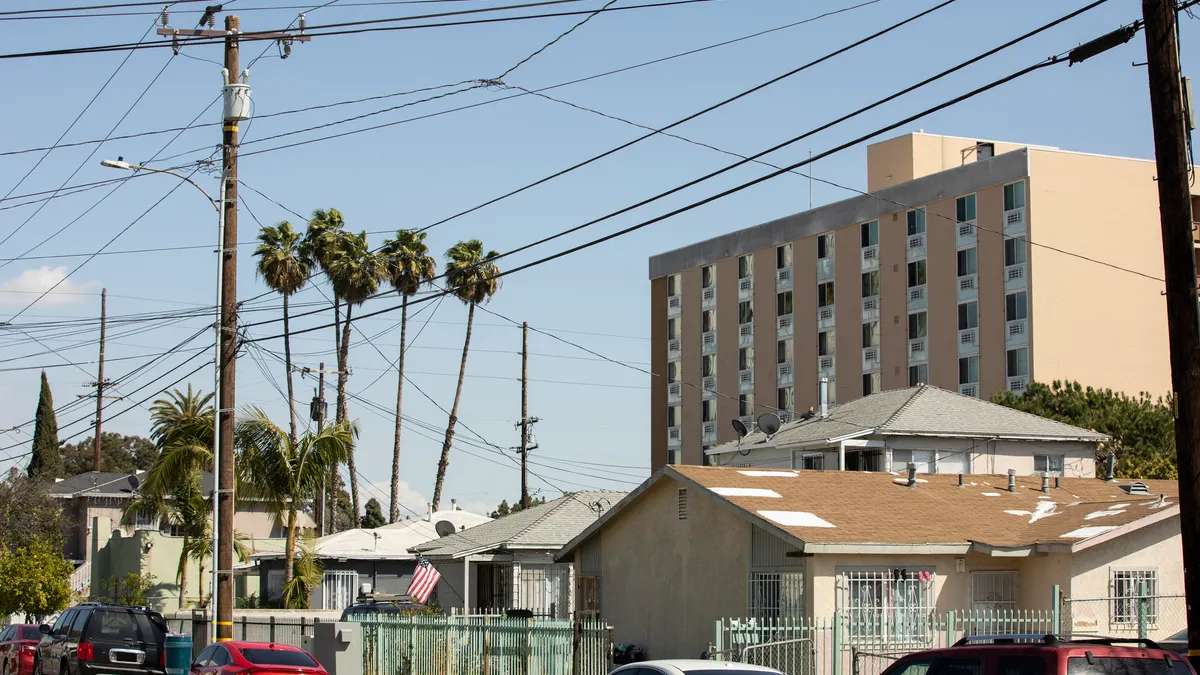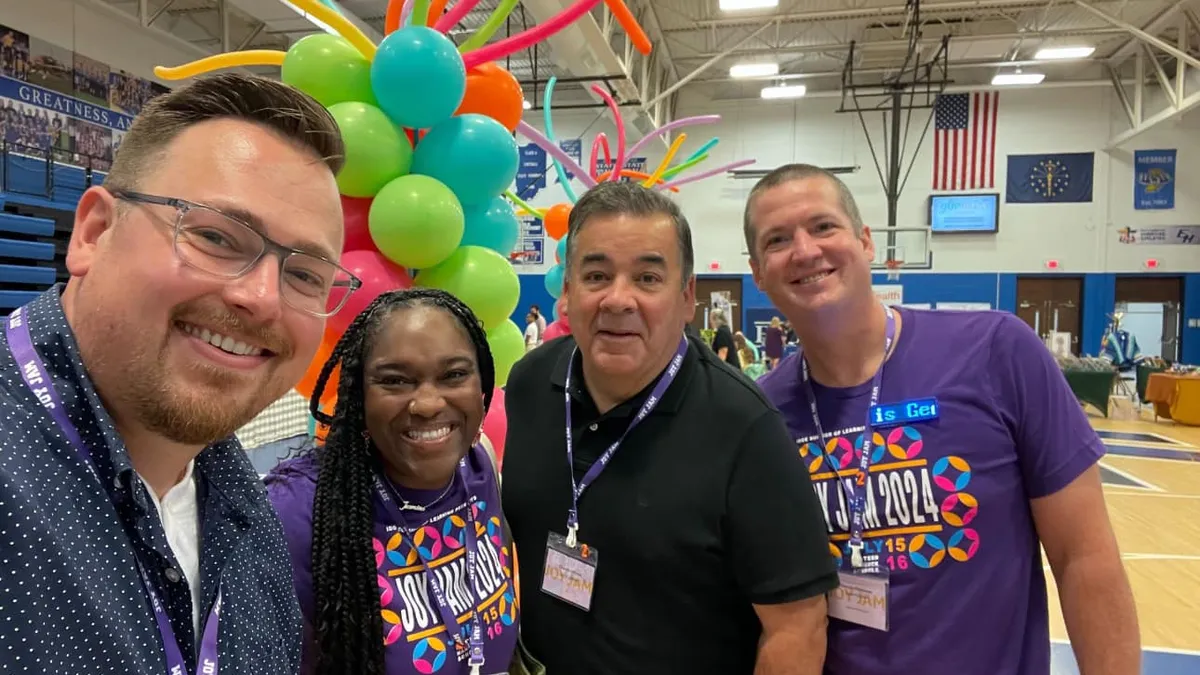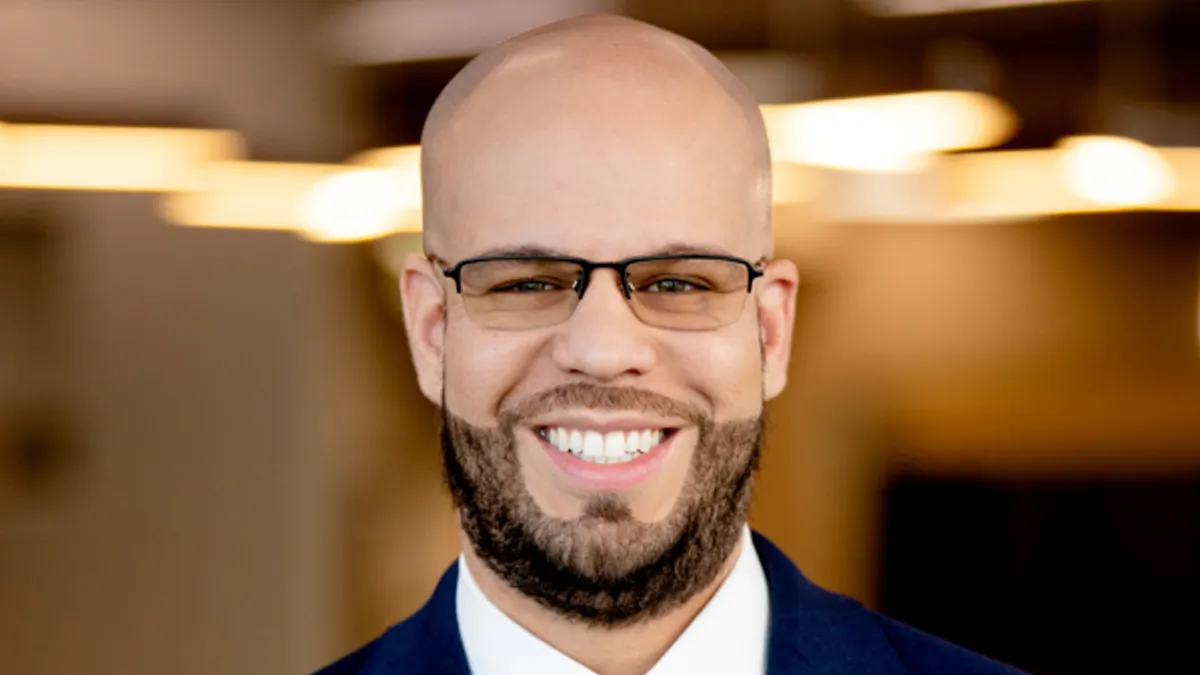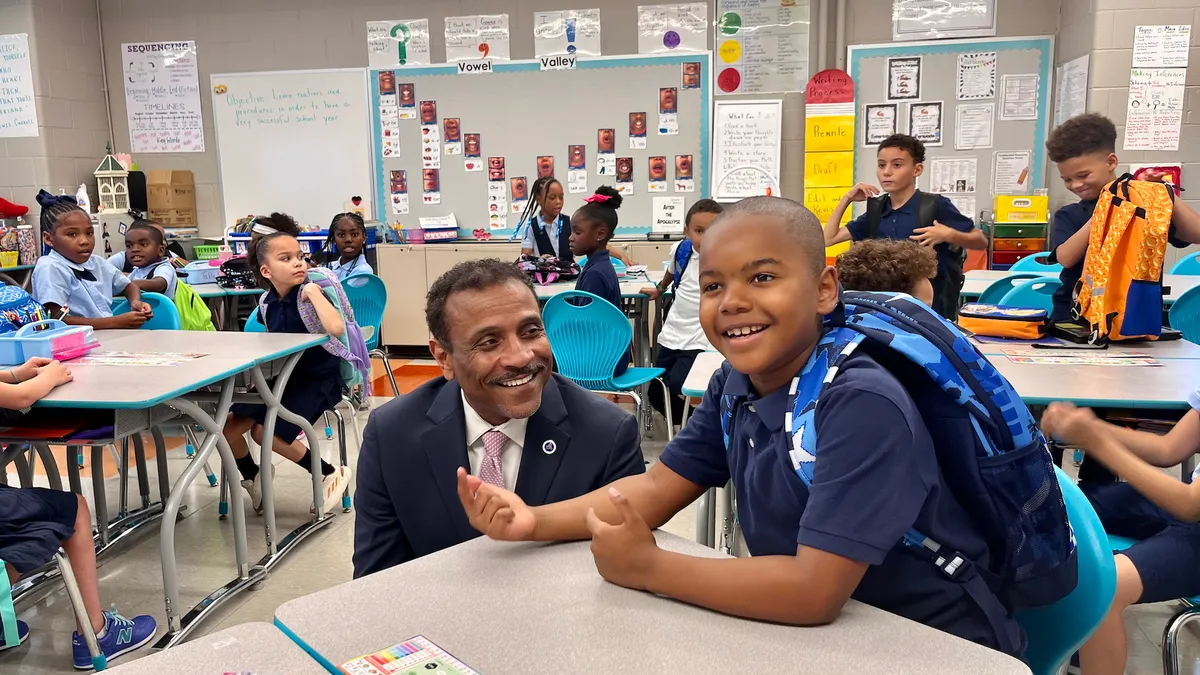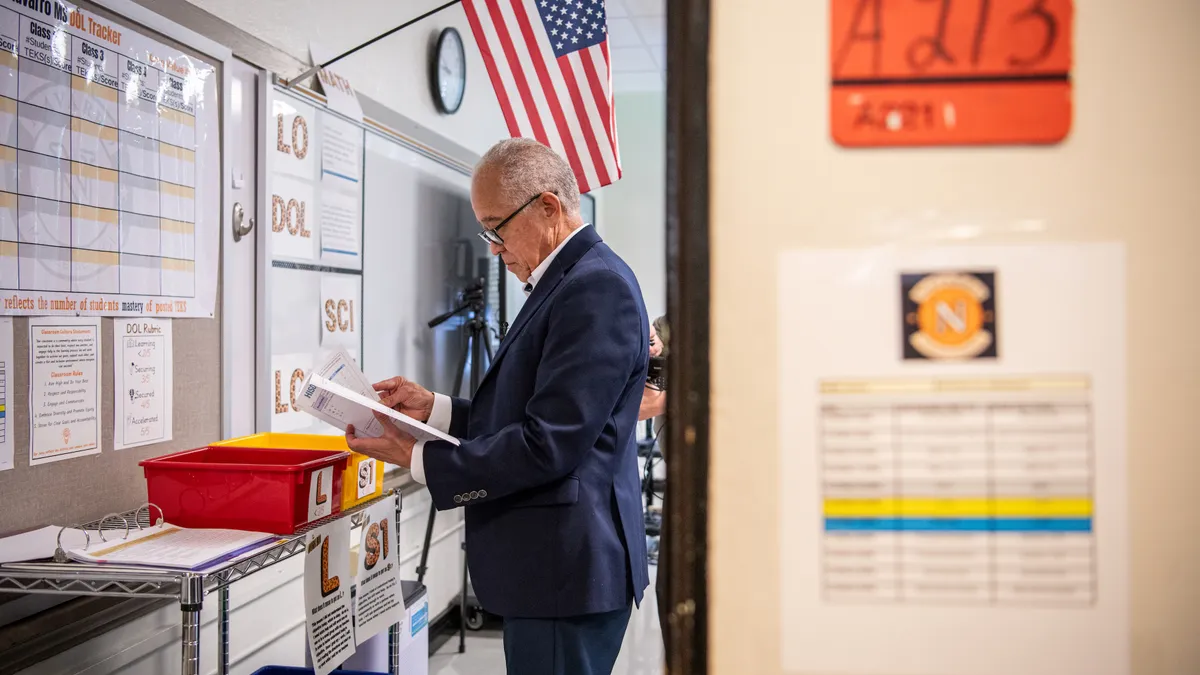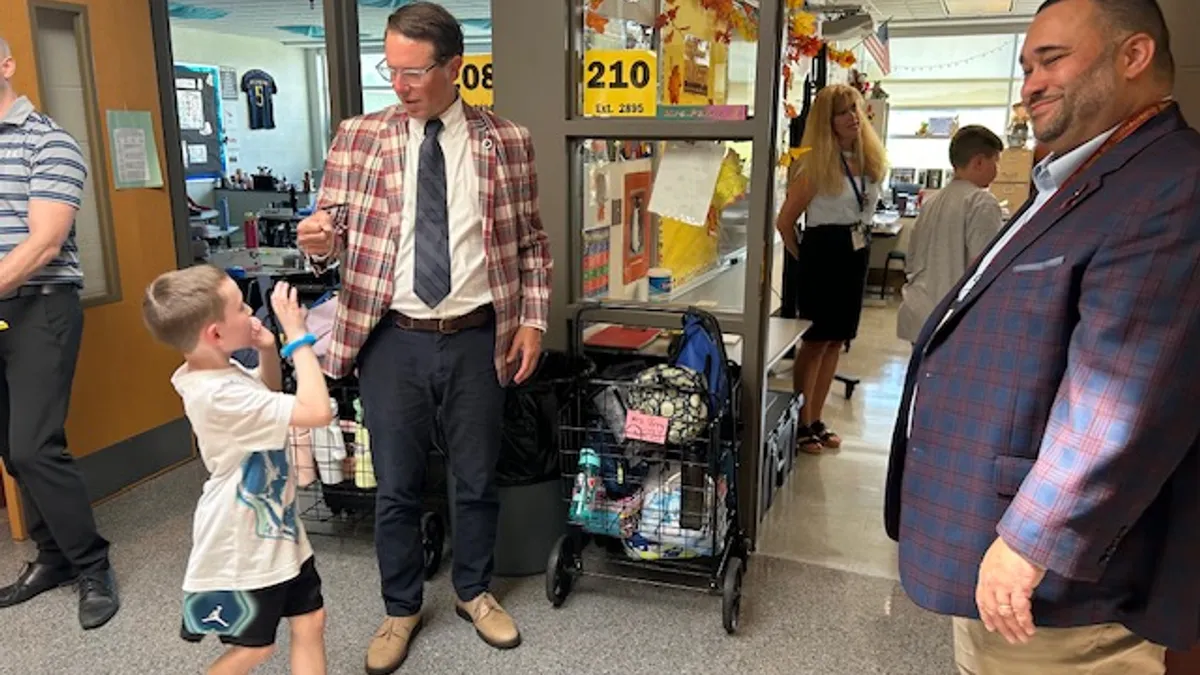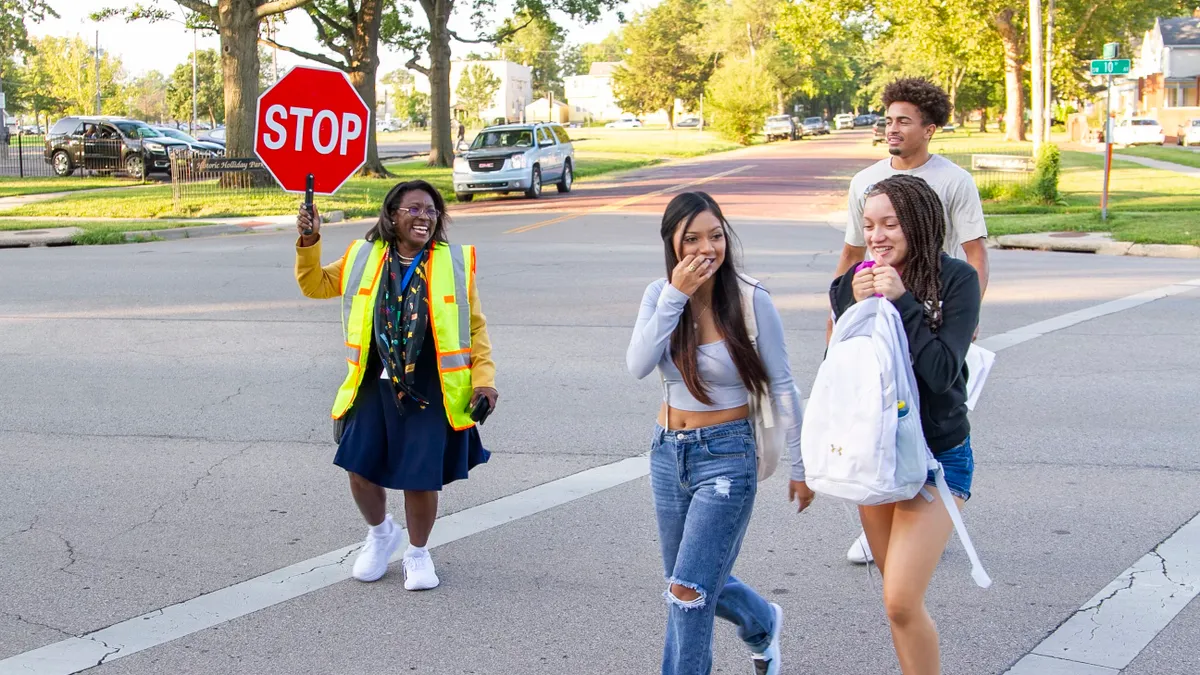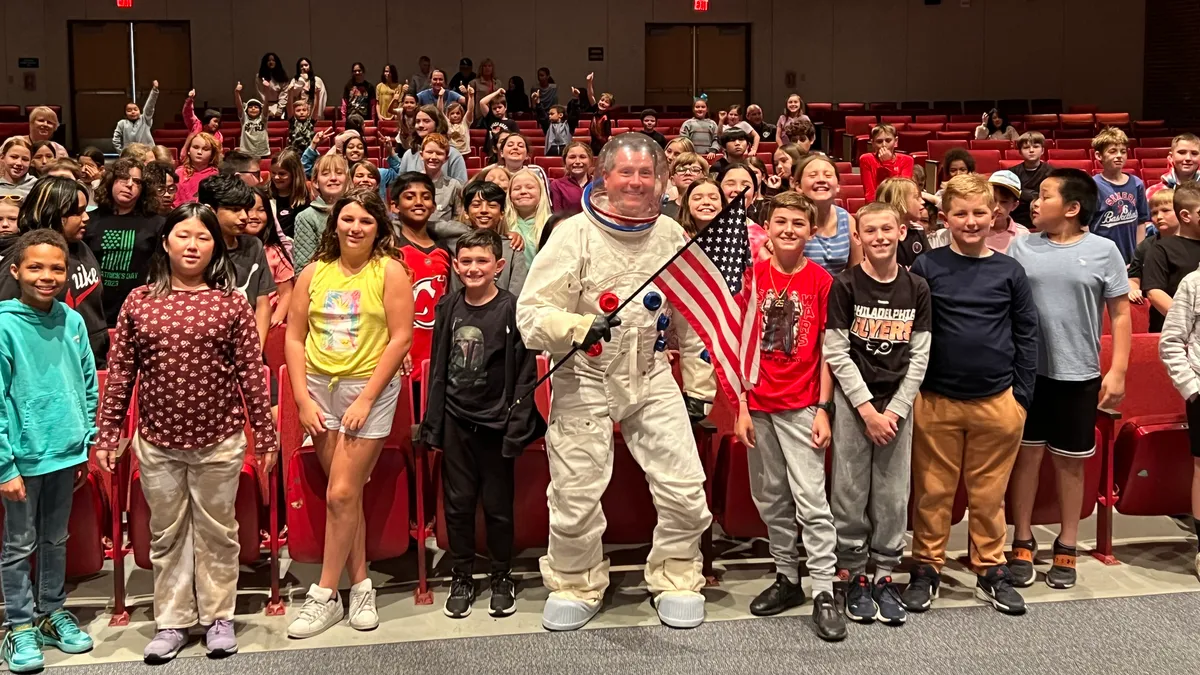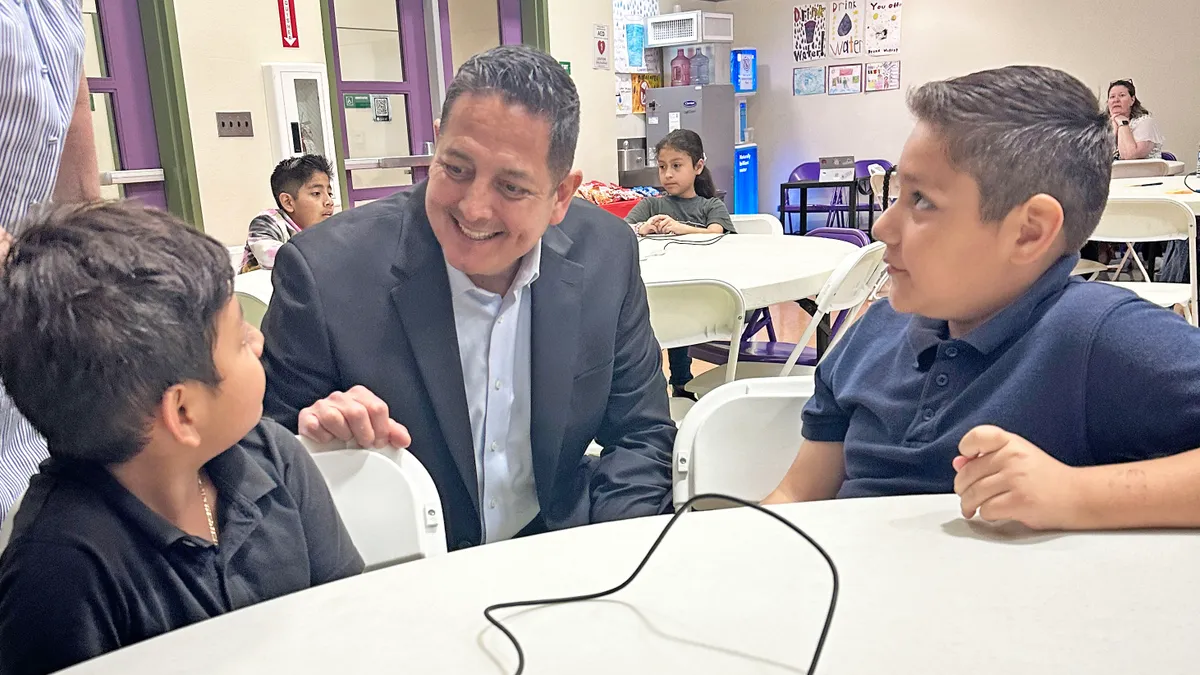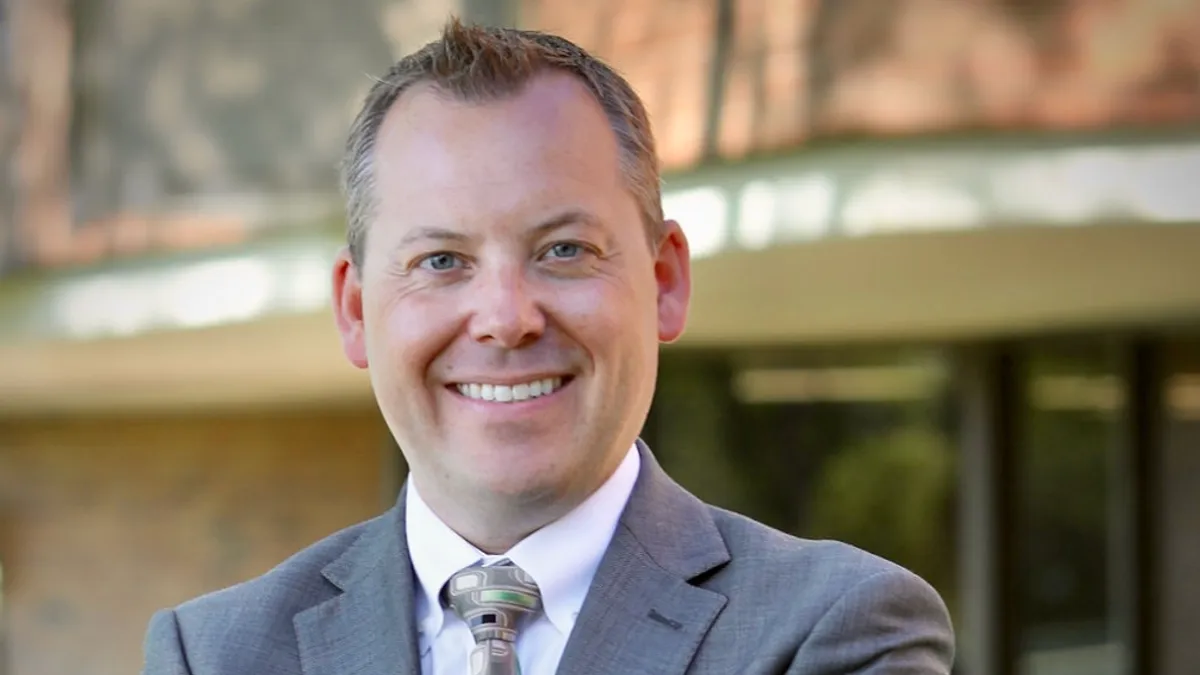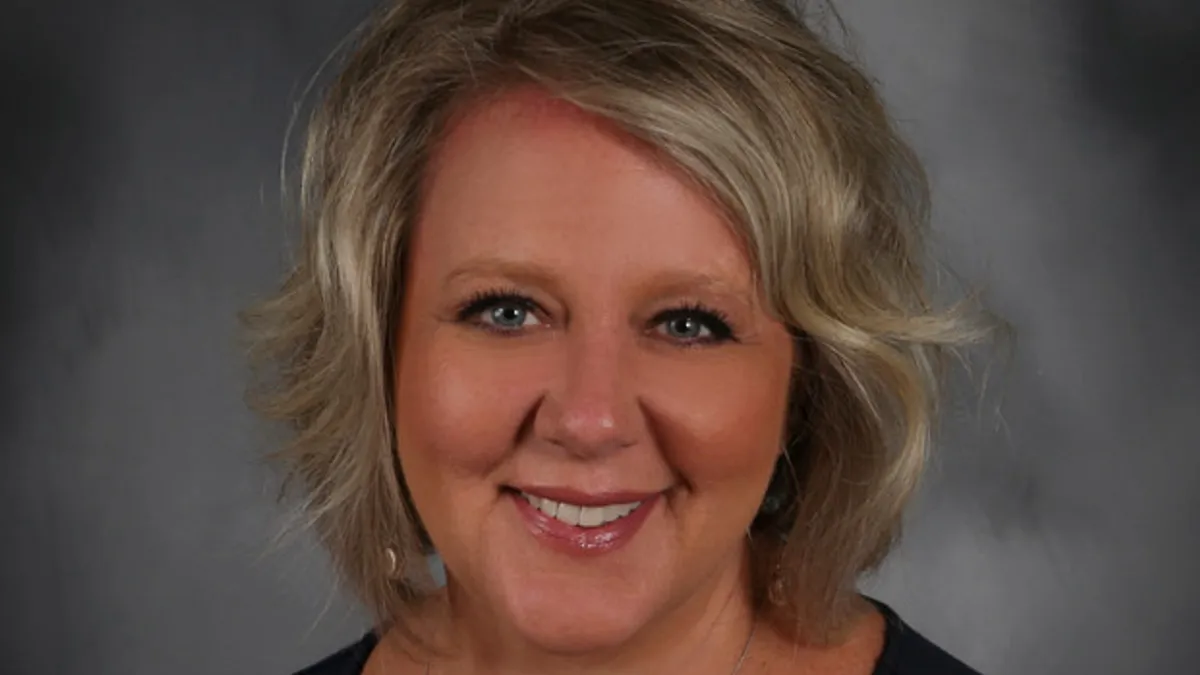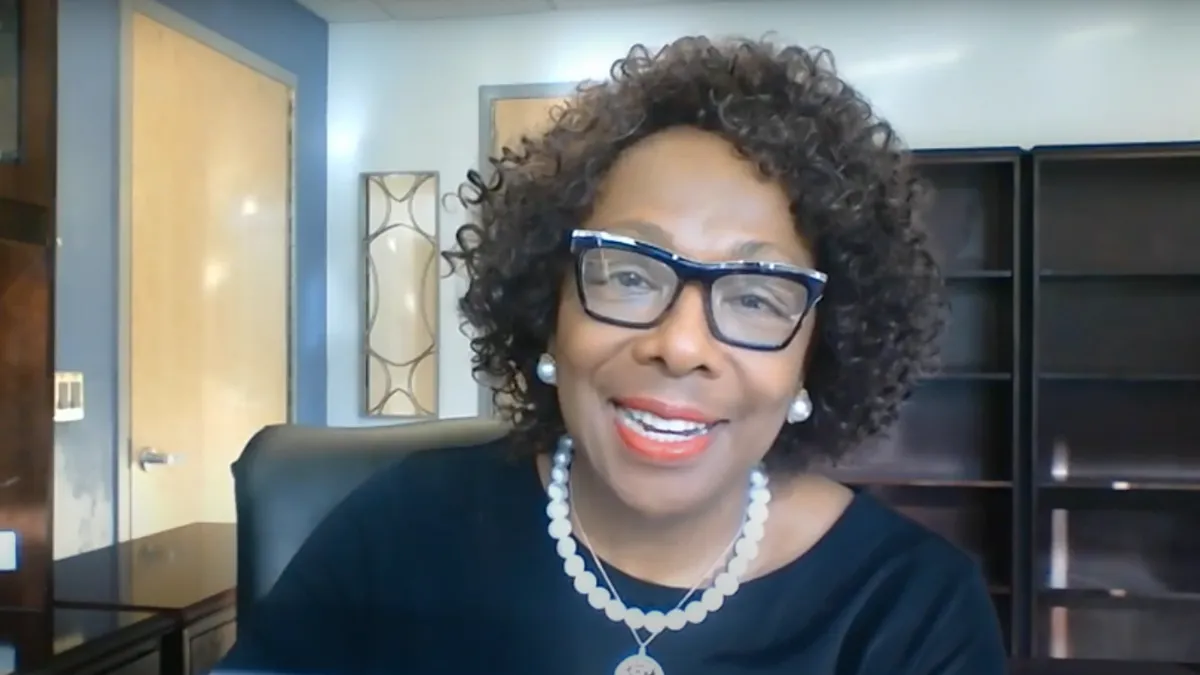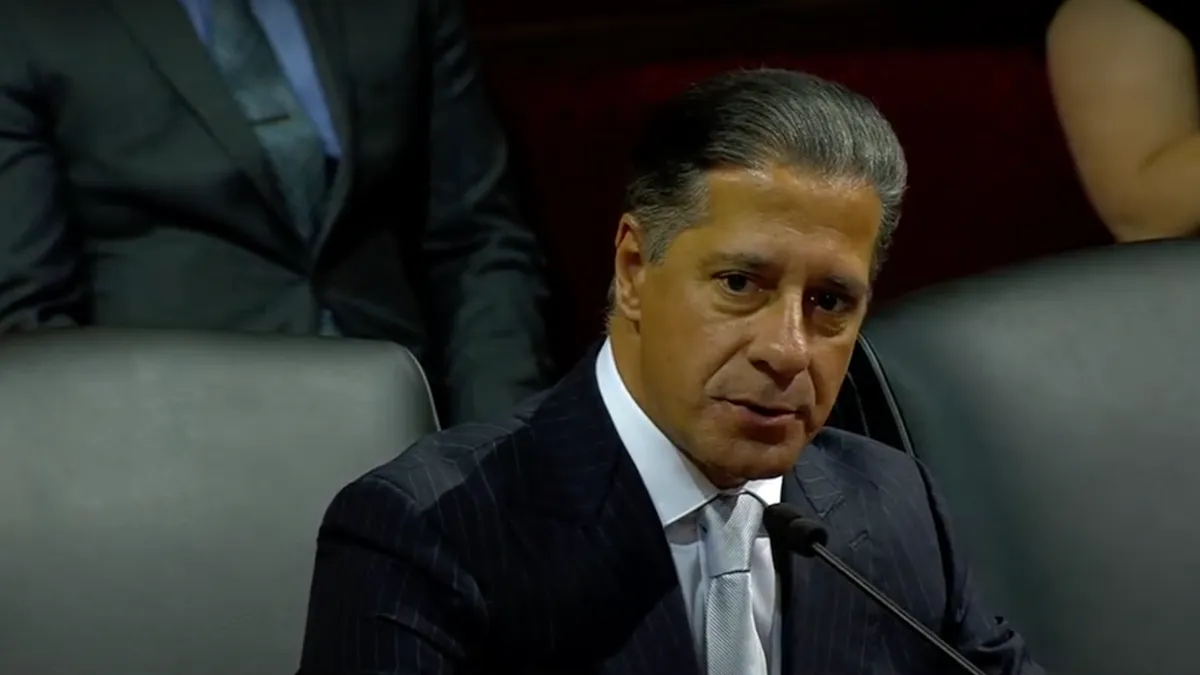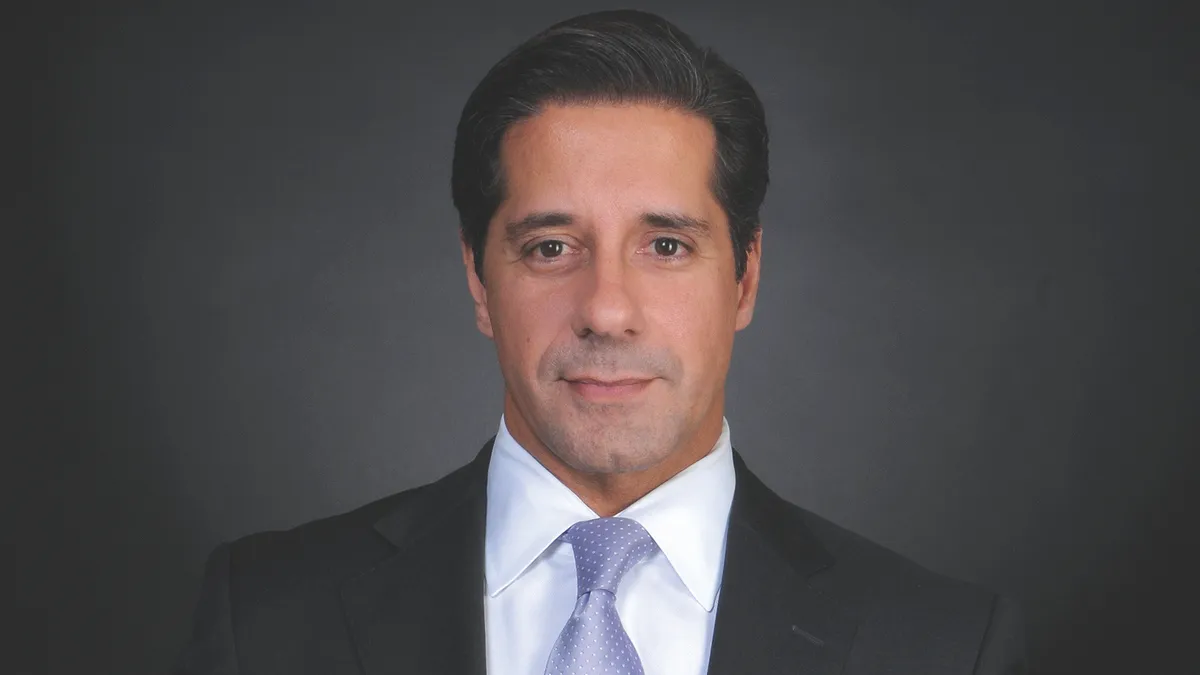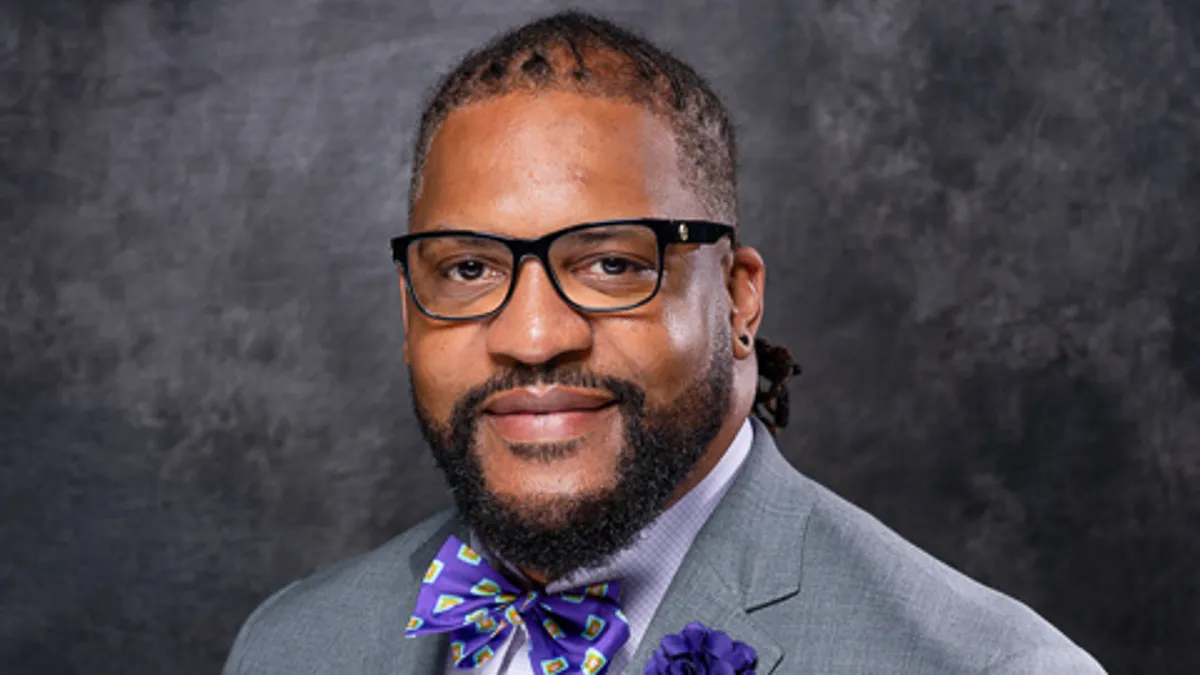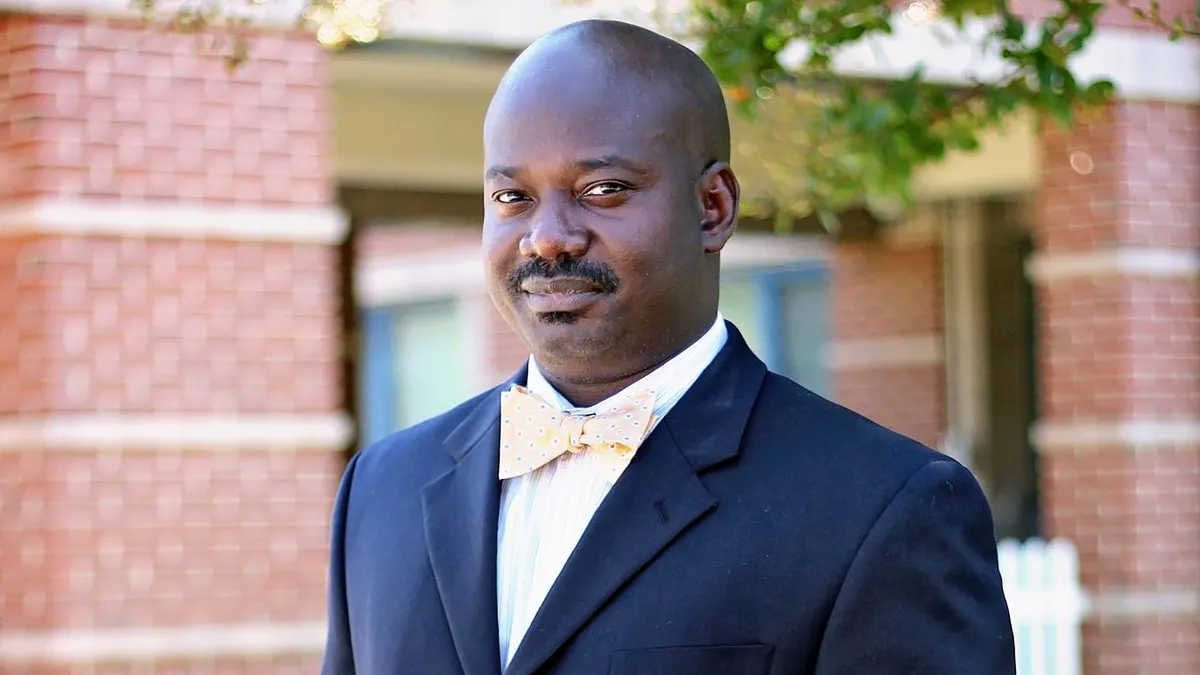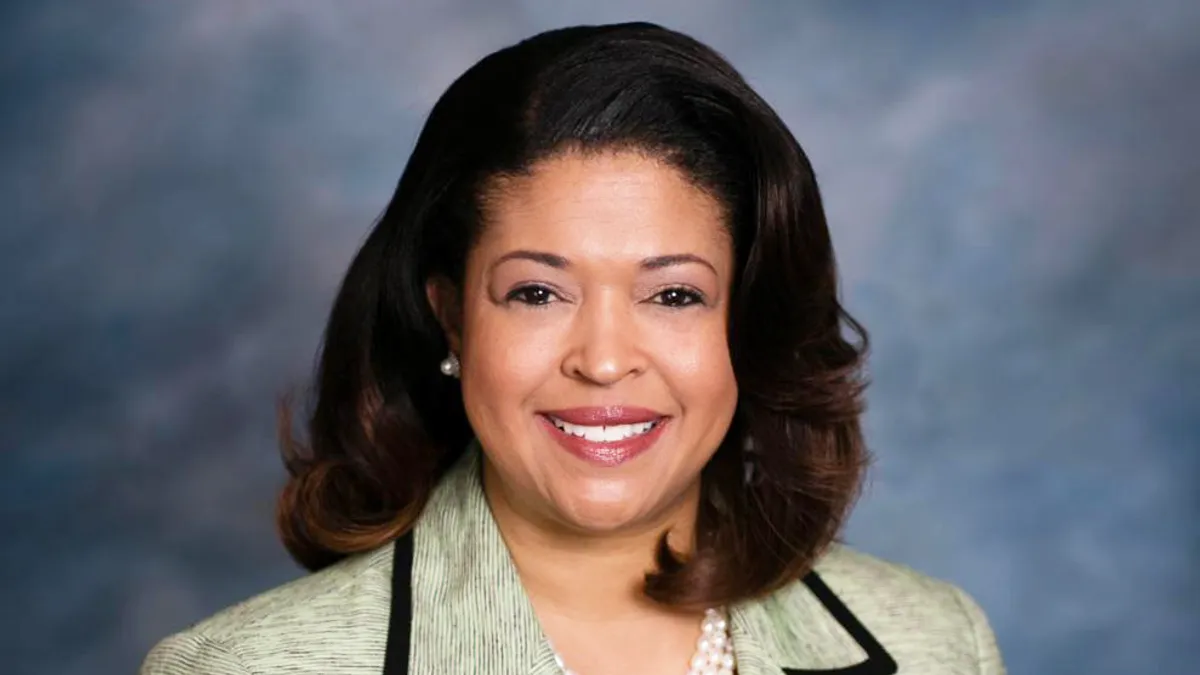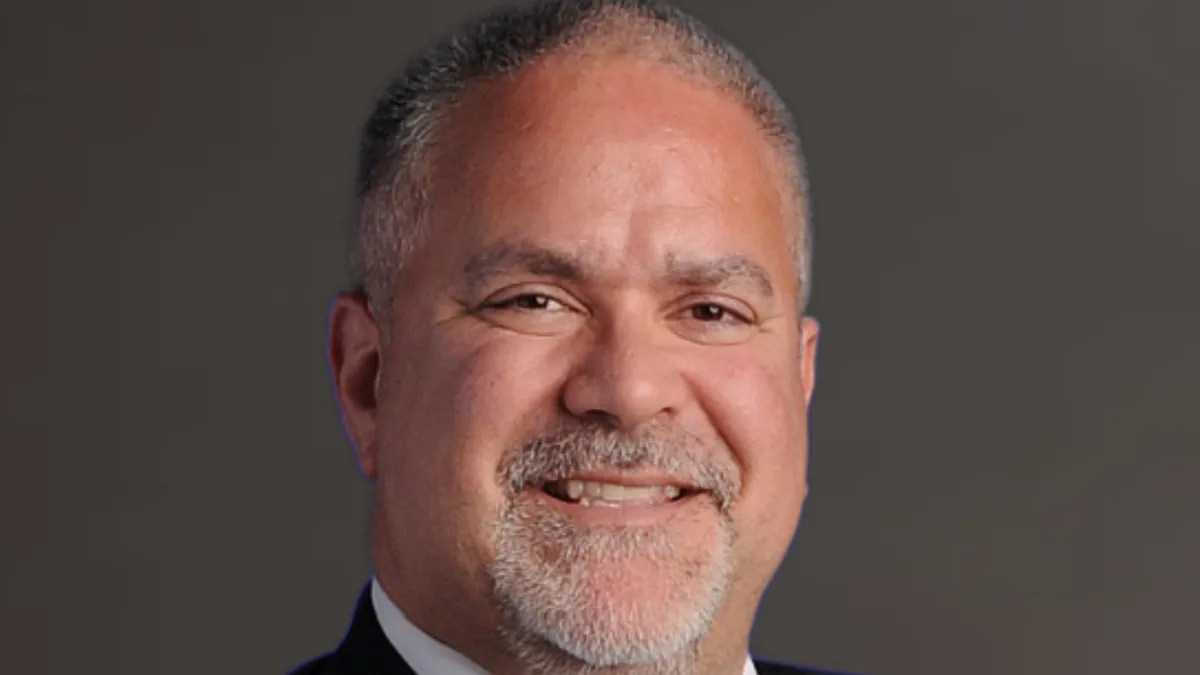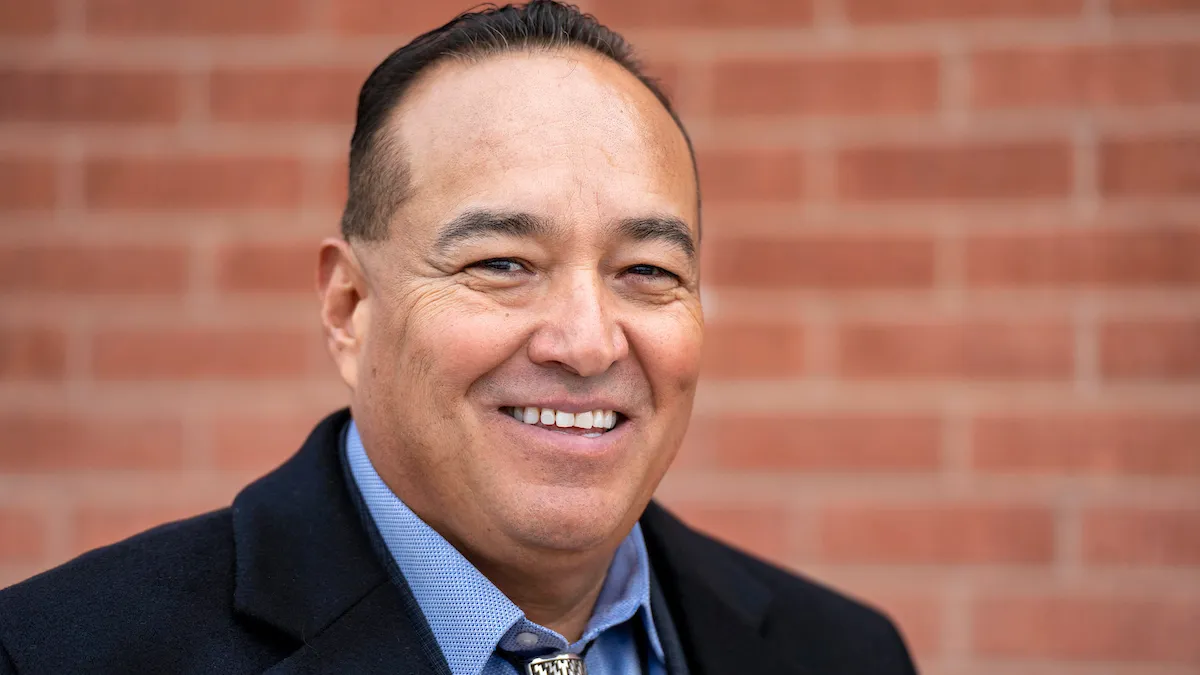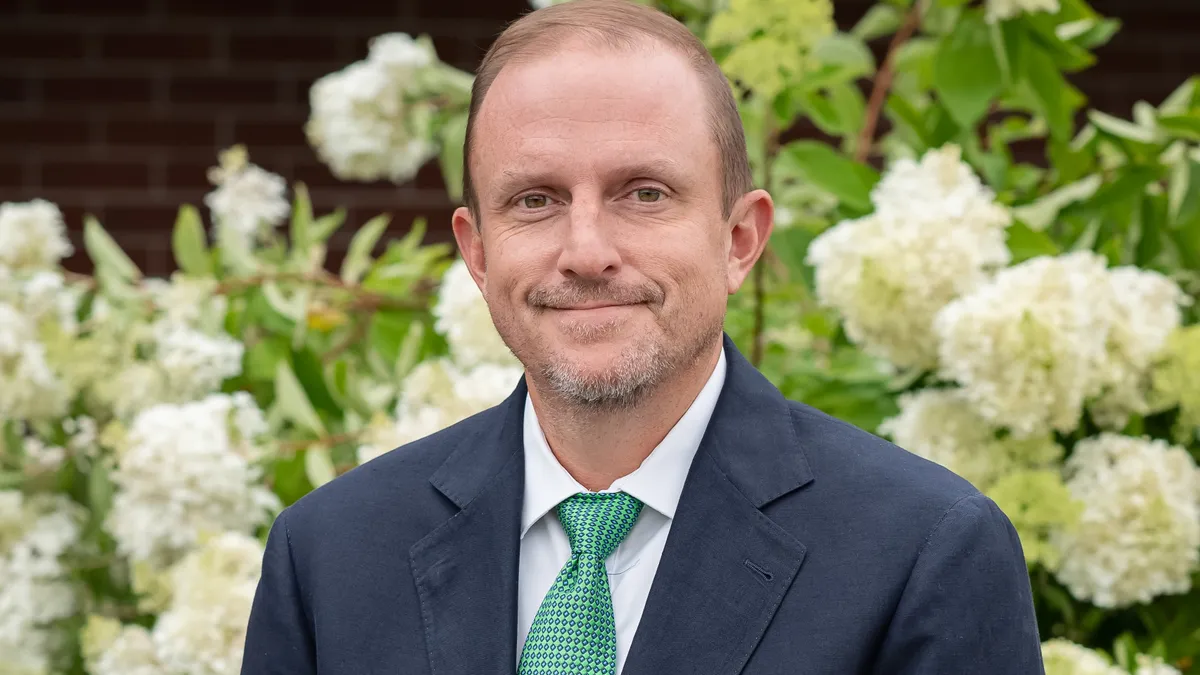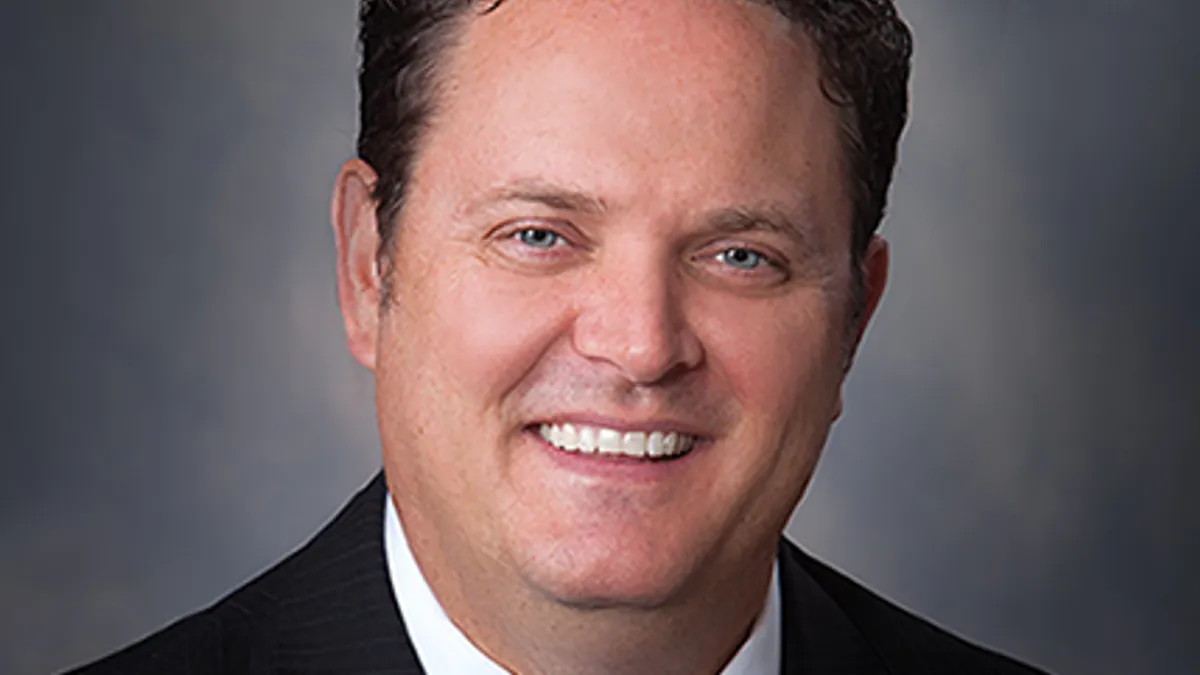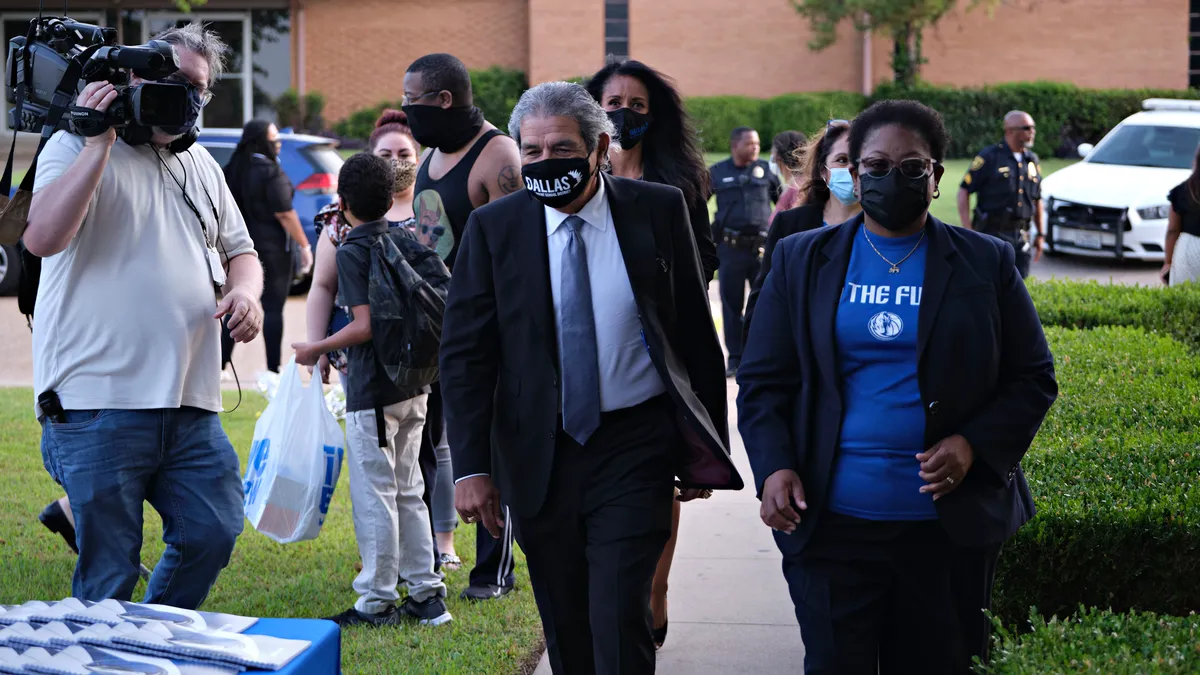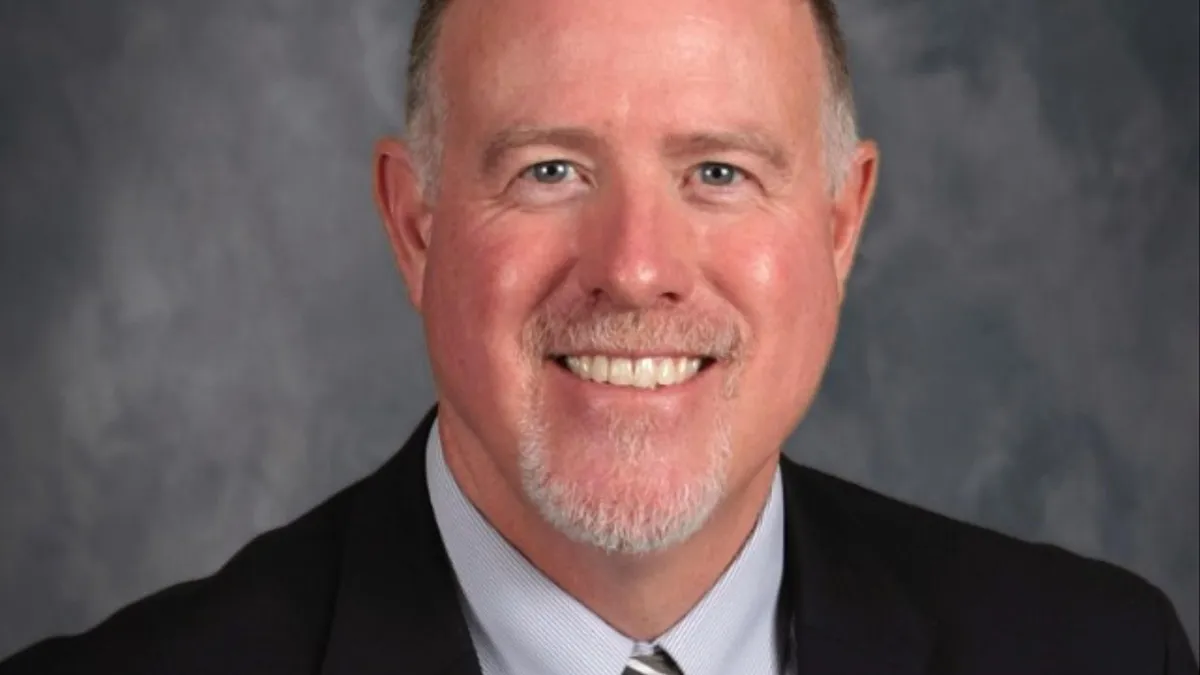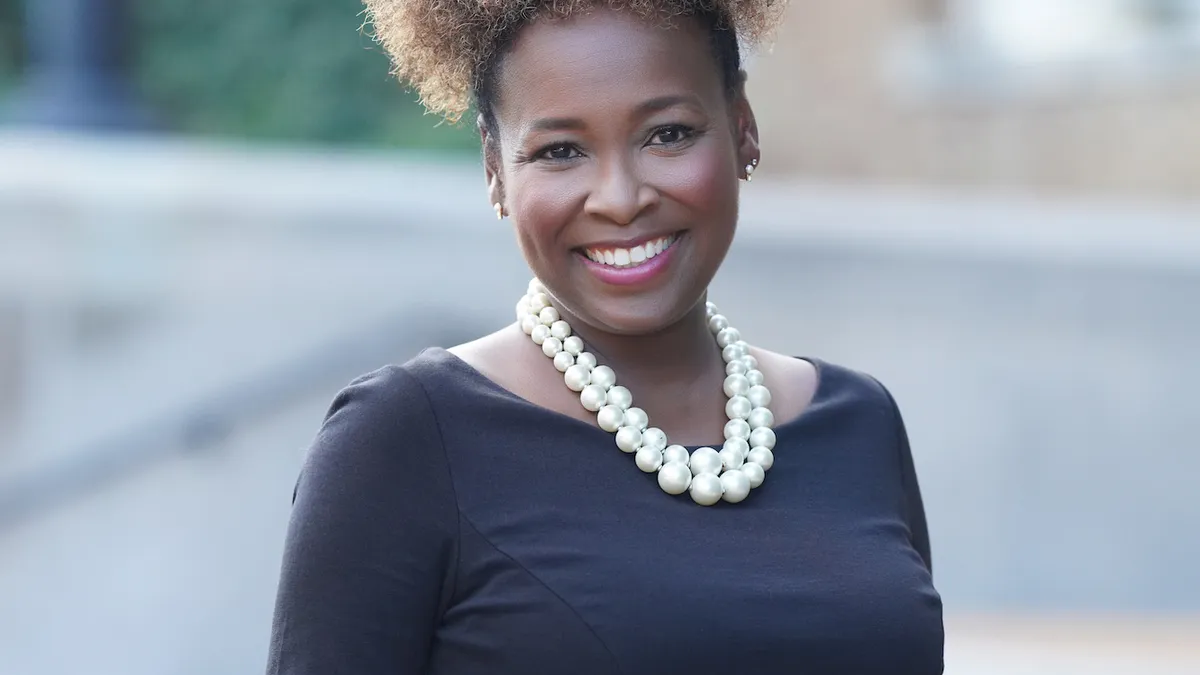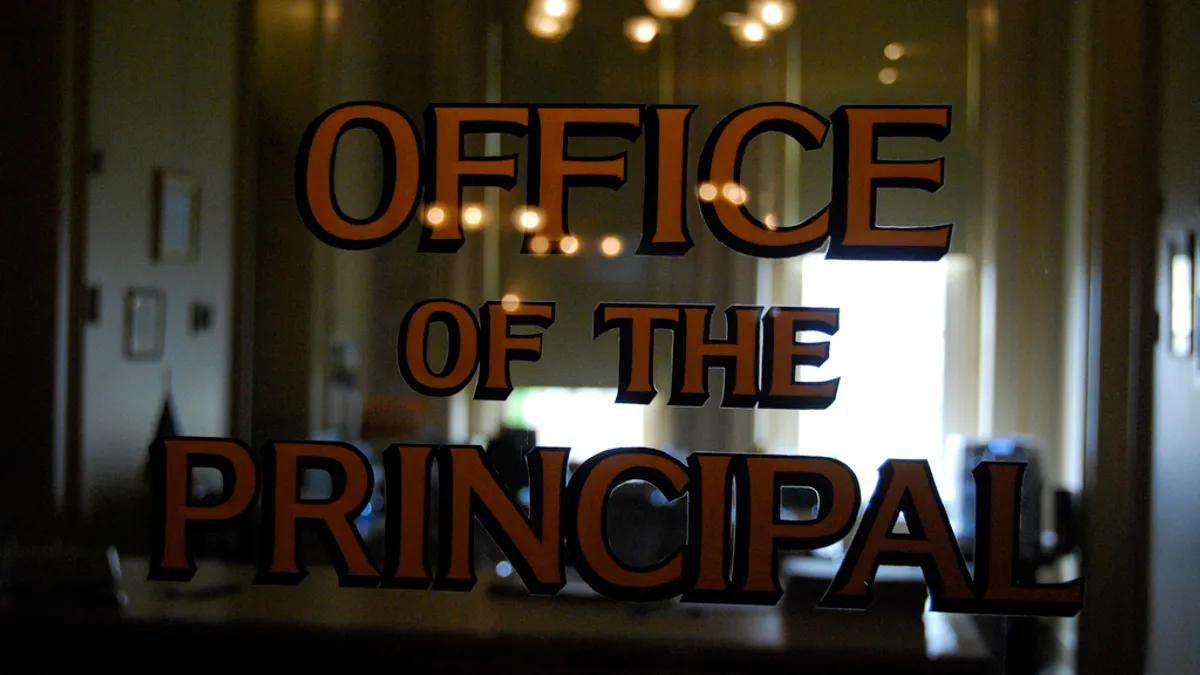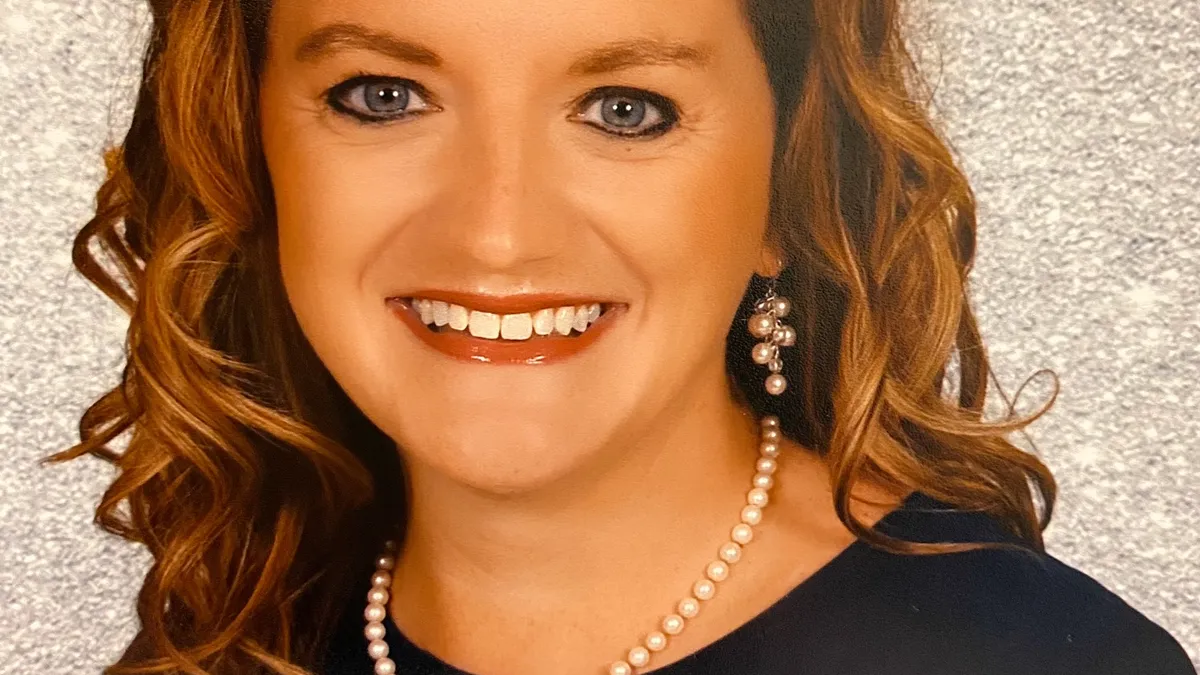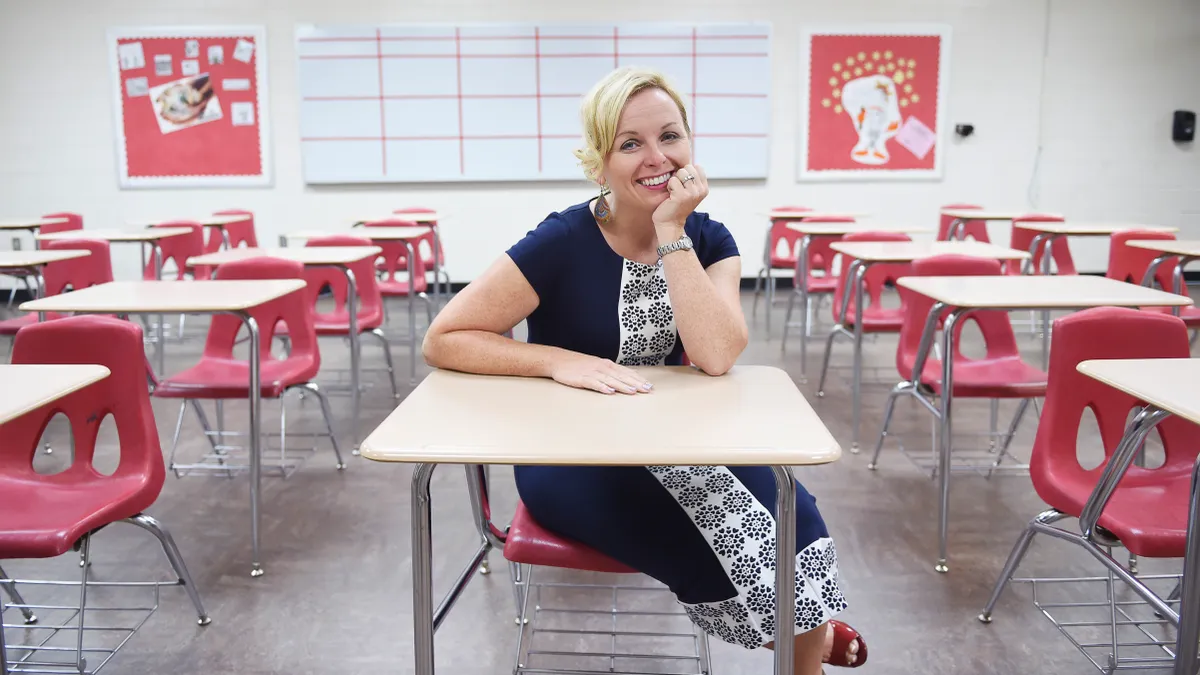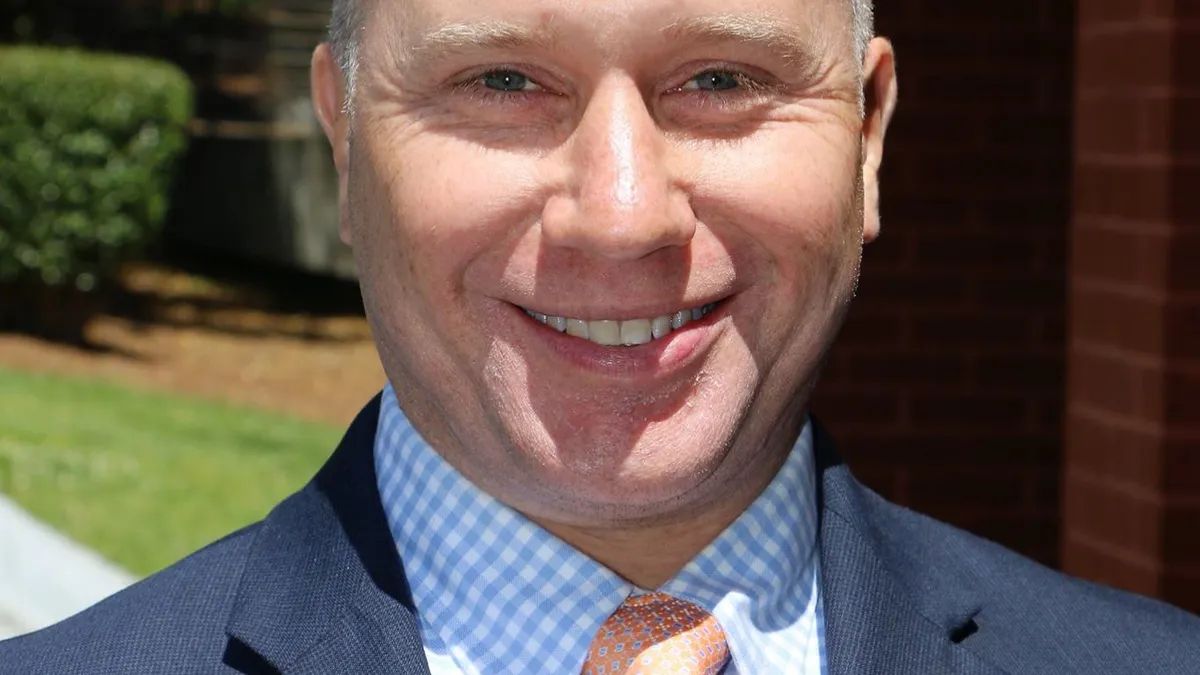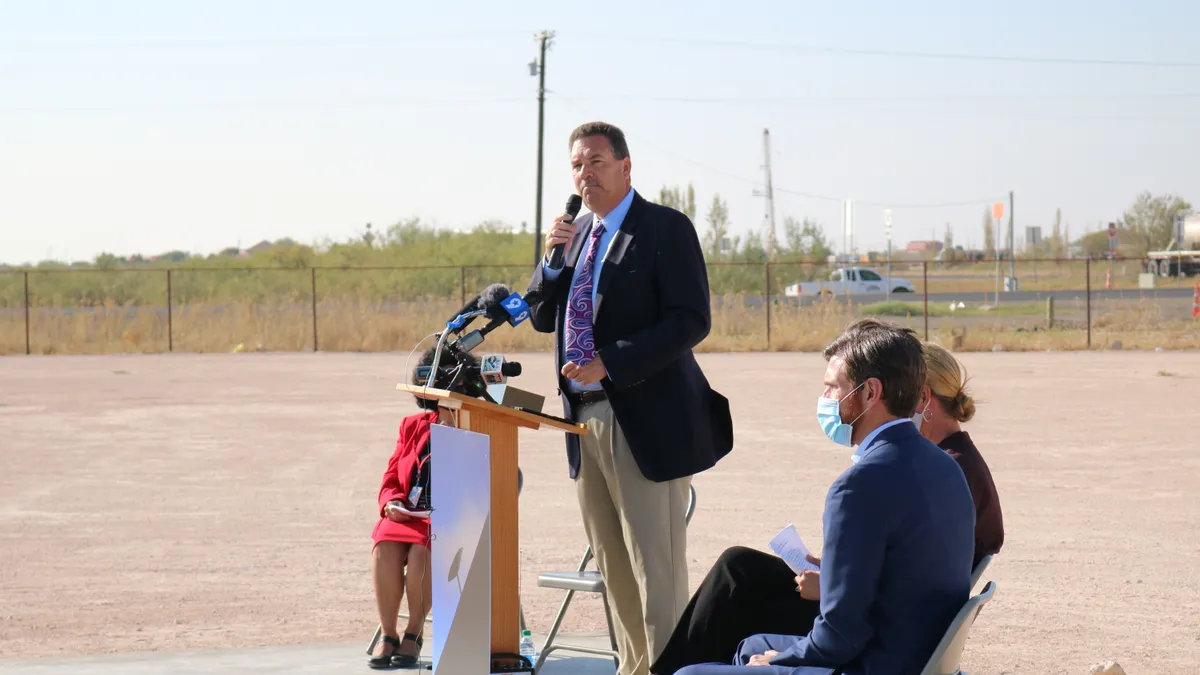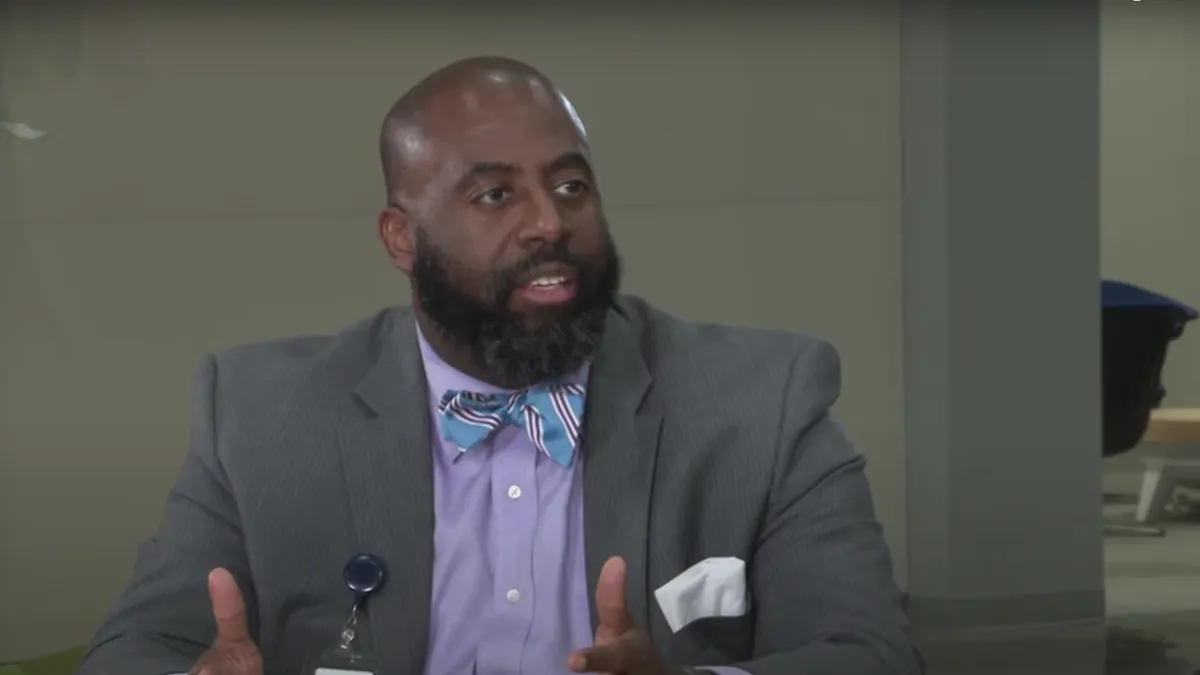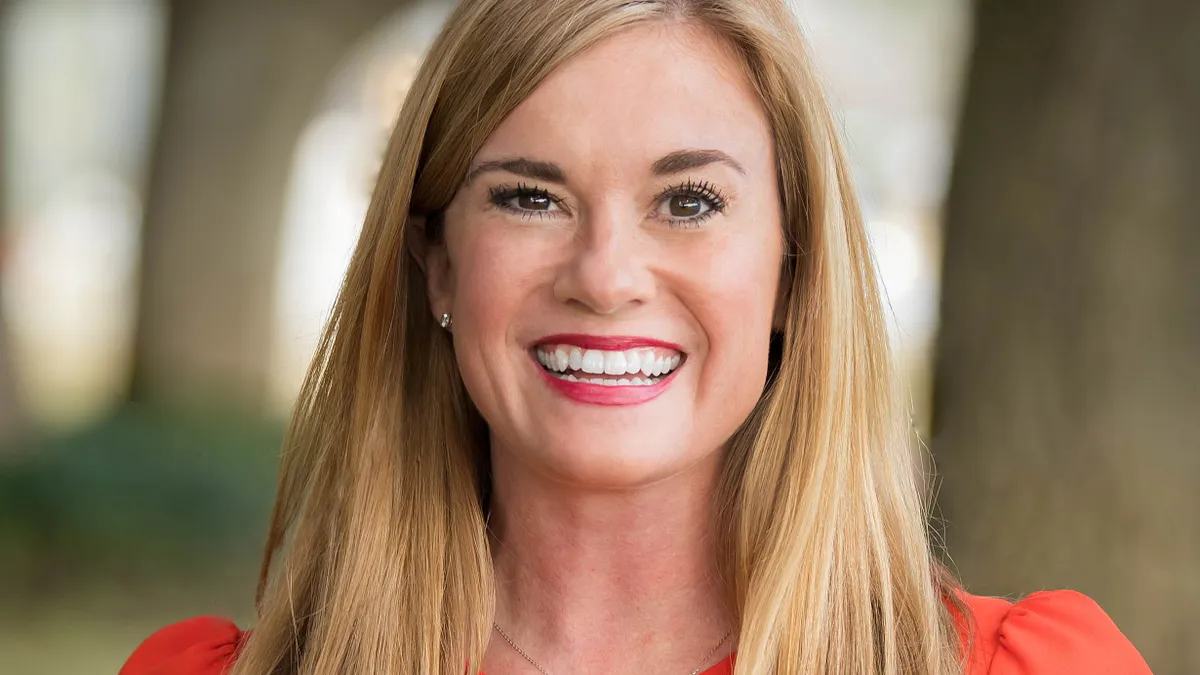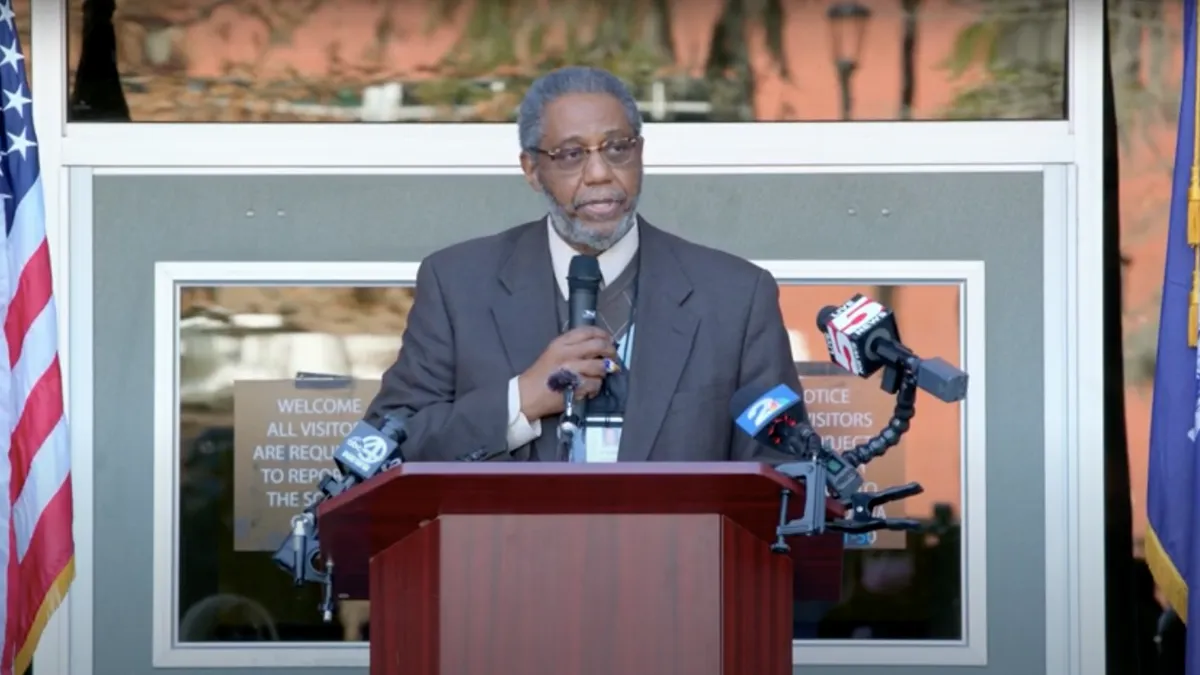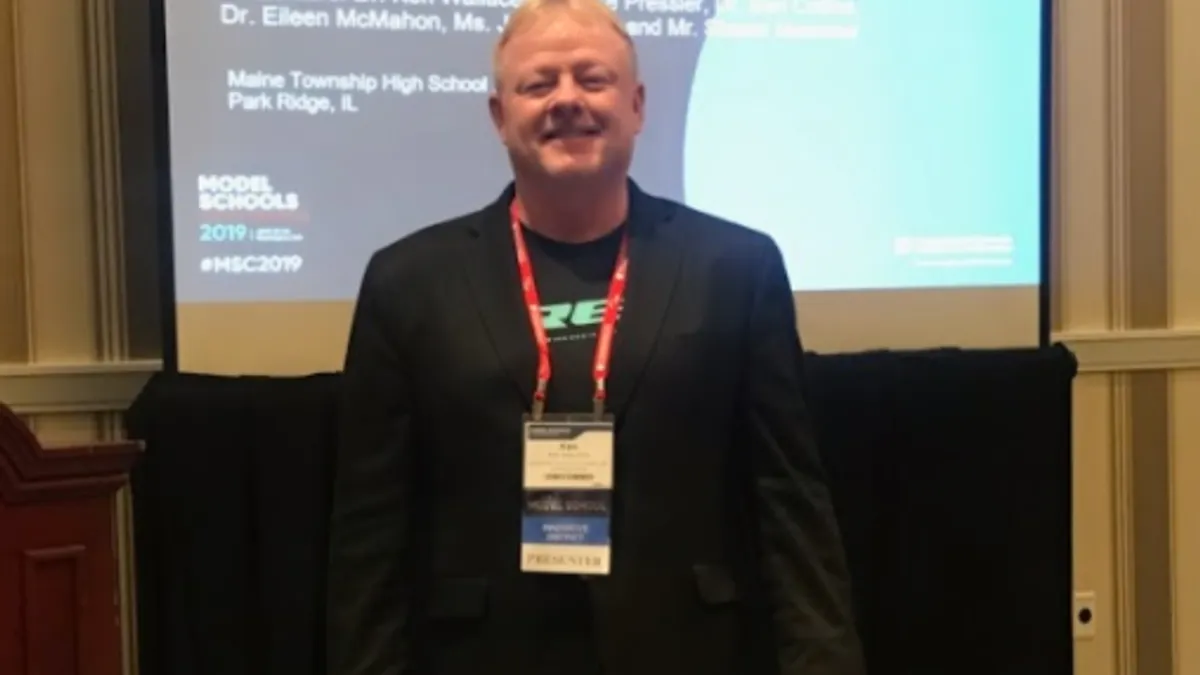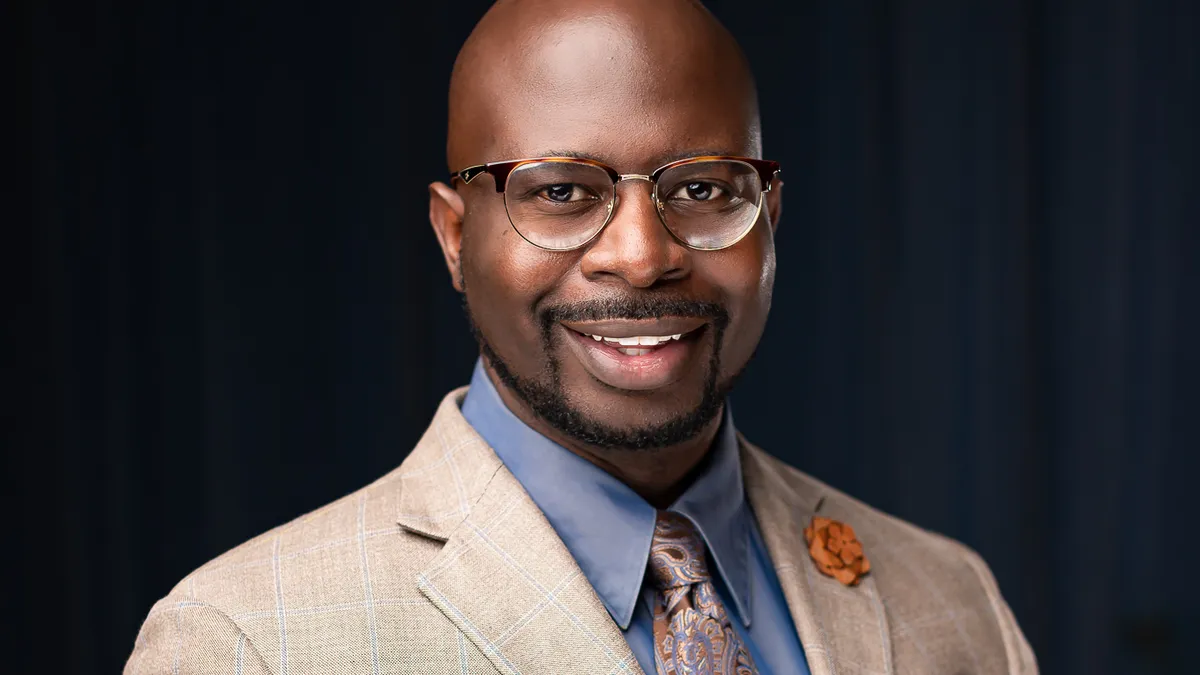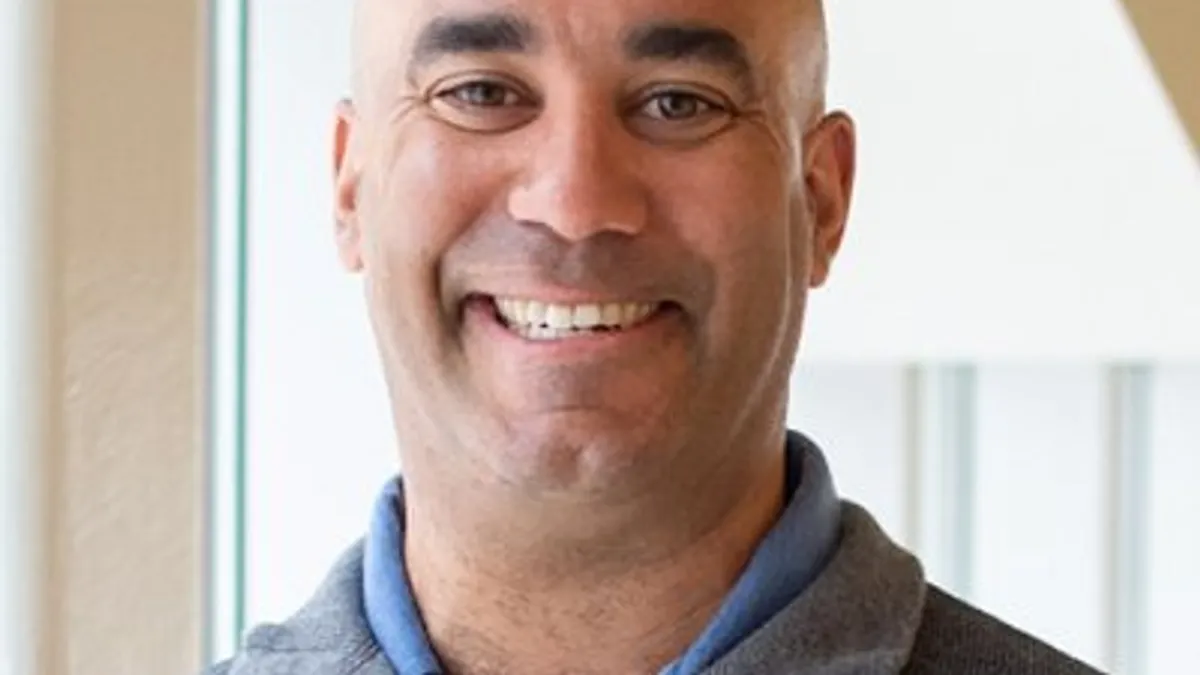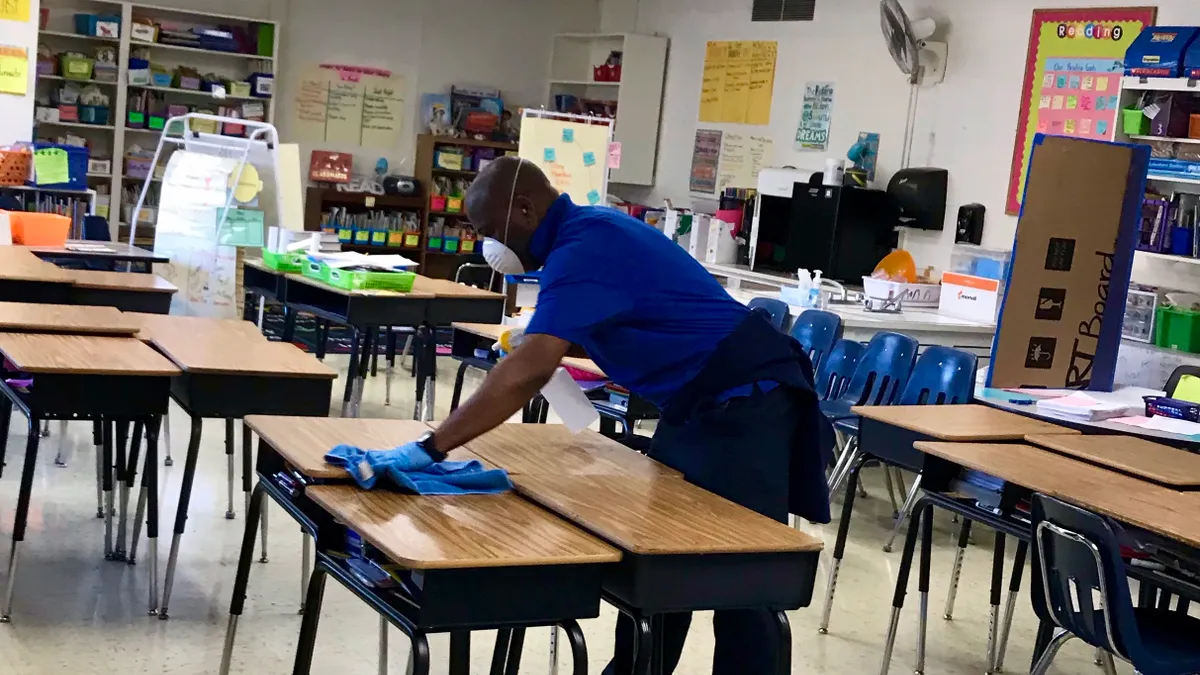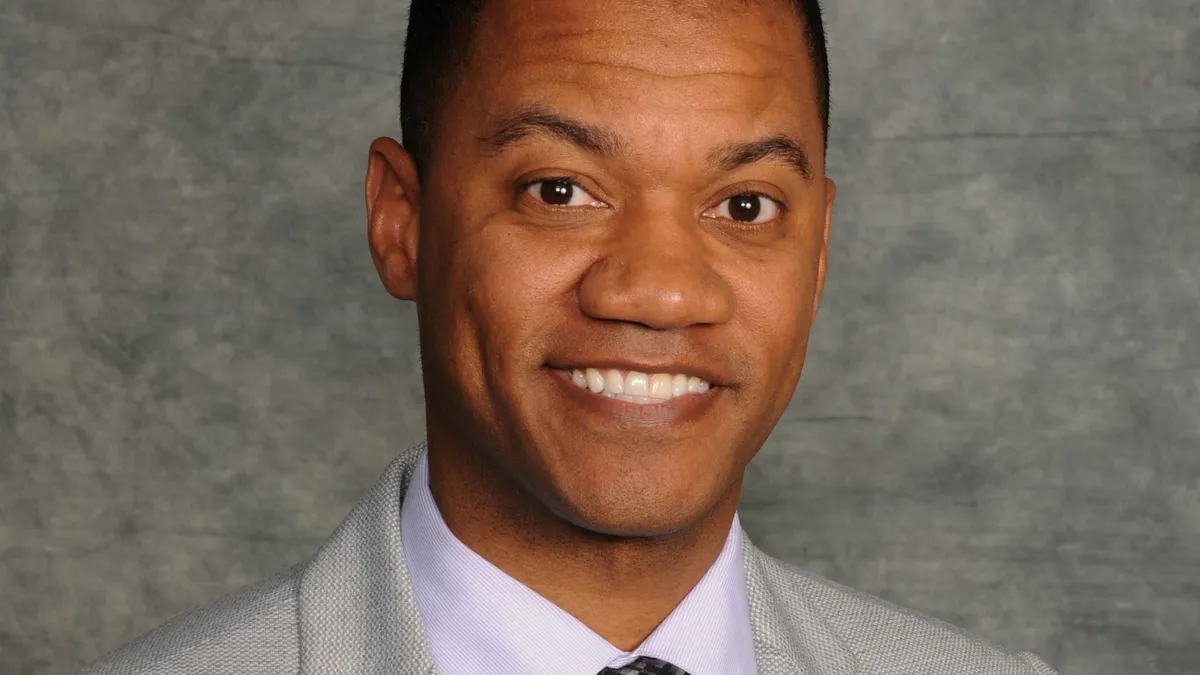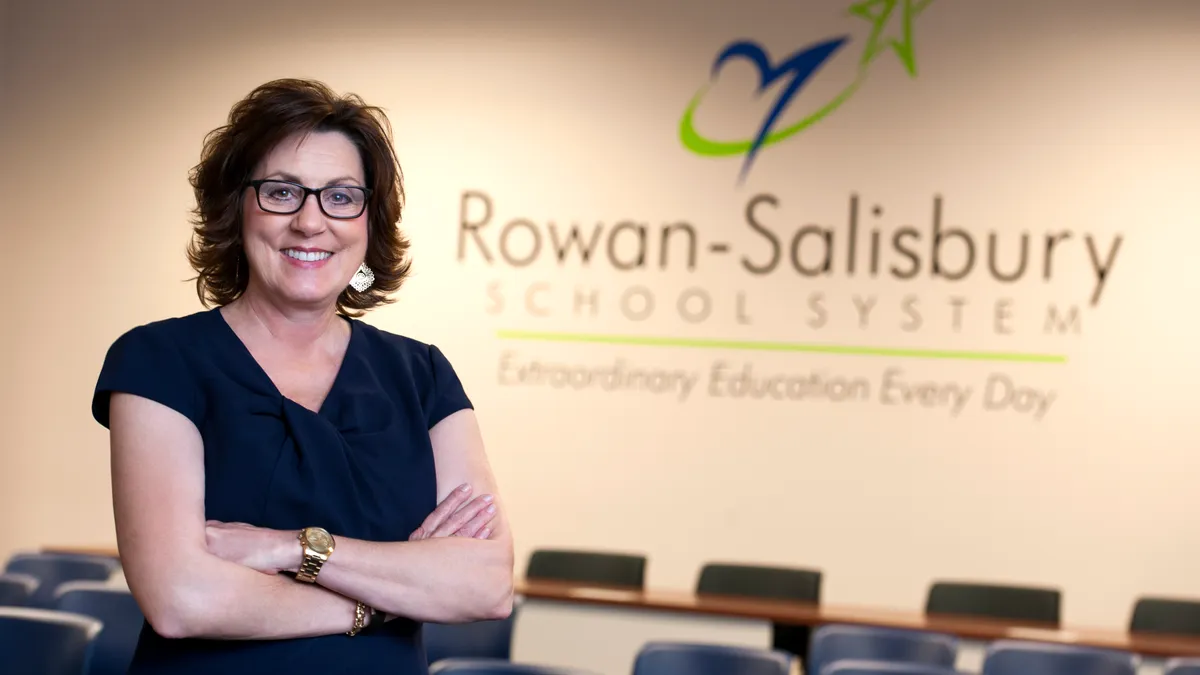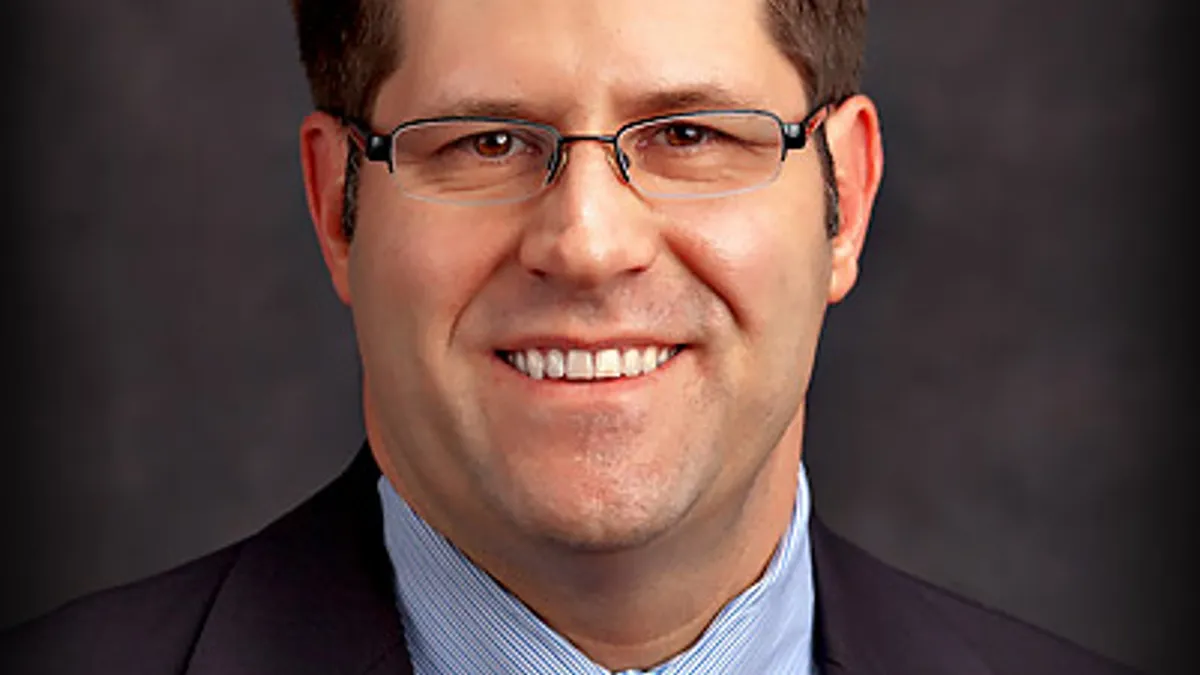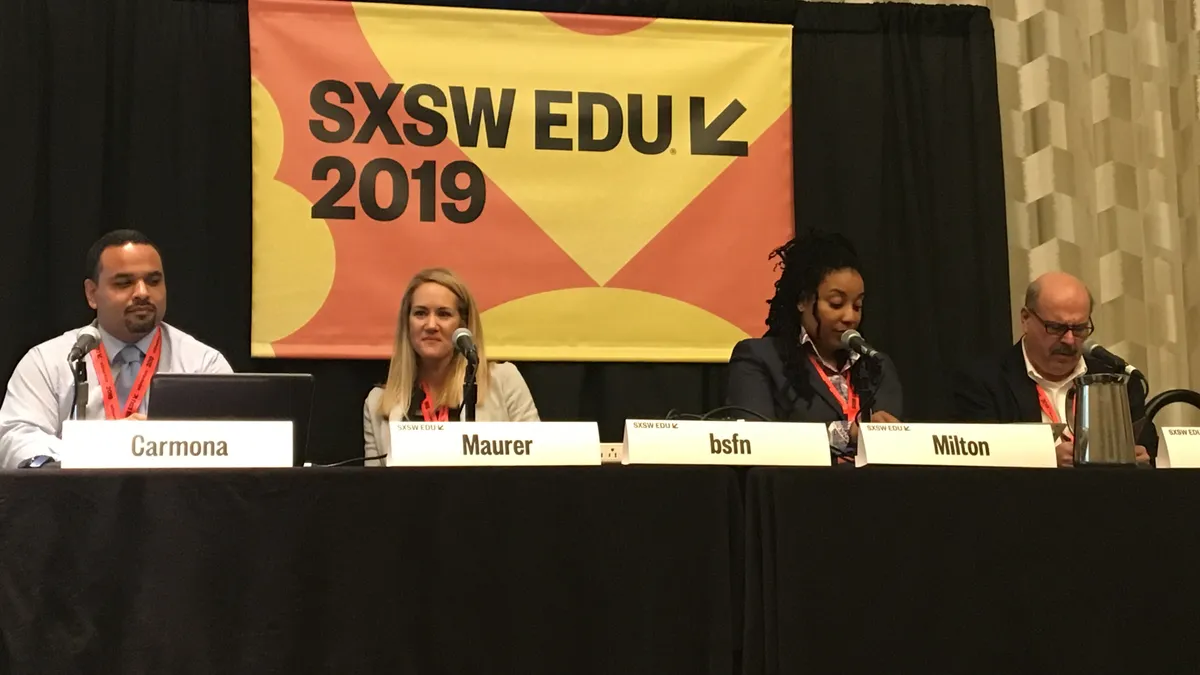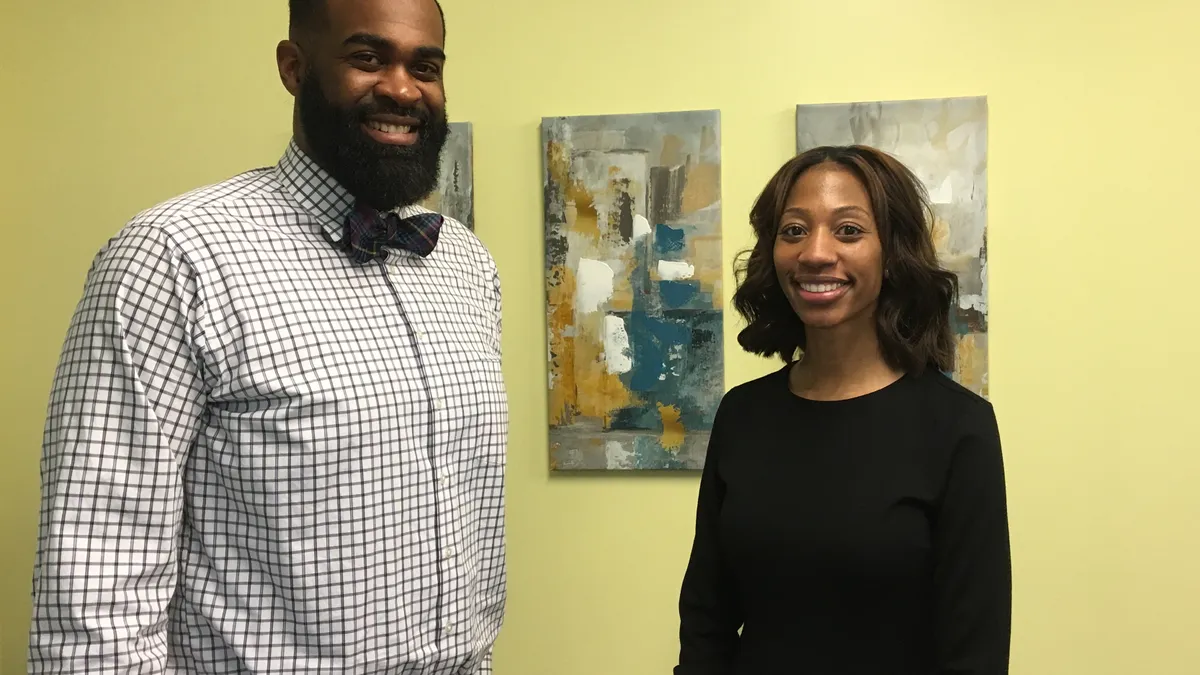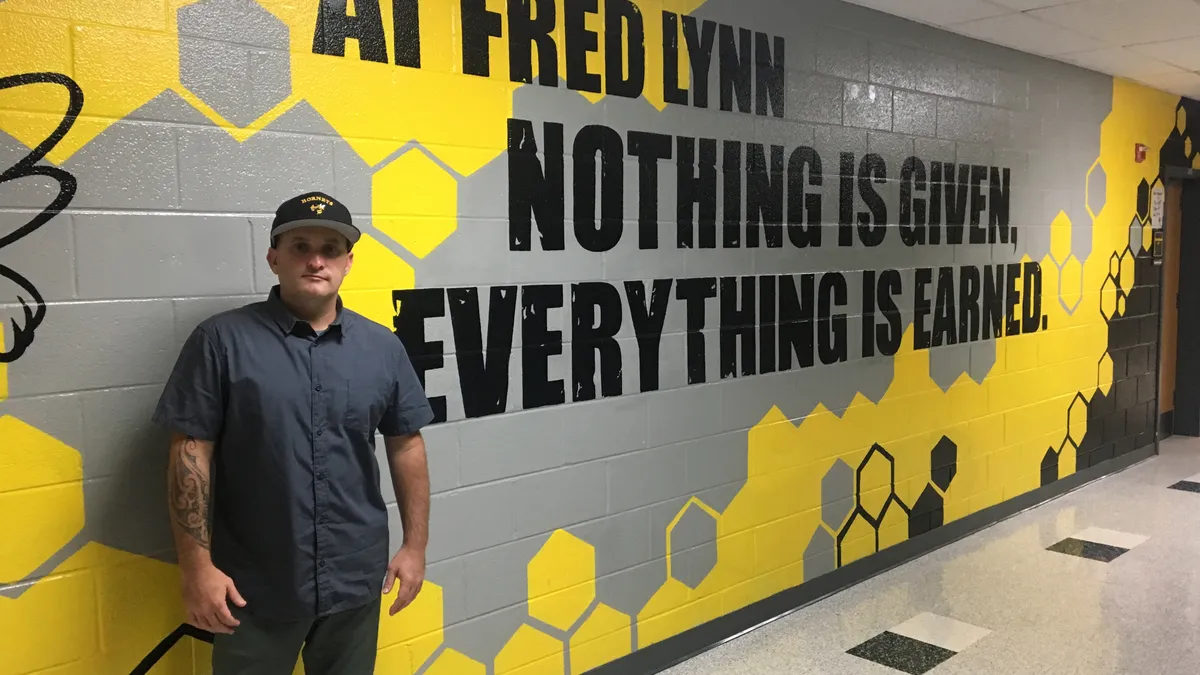Lessons In Leadership is an ongoing series in which K-12 principals and superintendents share their best practices and challenges overcome. For more installments, click here.
Over the past decade, Francisco Escobedo has led California's Chula Vista Elementary School District to state and national recognition with a focus on building deep relationships in schools and the community at large.
The 30,000-student district, located five miles from the U.S.-Mexico border, serves a student population in which over 50% qualify for free or reduced-price lunch and 58% are Hispanic. A third are English learners, and many have family on both sides of the border, through which a significant amount of business flows from Tijuana.
Education Dive spoke with Escobedo to discuss the district's growth, his strategies for keeping arts programming alive, what keeps him up at night, how increased immigration enforcement has impacted schools and more.
EDITOR'S NOTE: This interview has been edited for brevity and clarity.
EDUCATION DIVE: Your district has been recognized as a model for continuous improvement and also as one of California’s “positive outliers.” What are some of the steps that were taken to get to that point?
FRANCISCO ESCOBEDO: I think in many ways, function follows form. How you structure yourself in a way that's very coherent and focus is critical for growth.
As a district, our support to the [school] site is integral in what we do. I spend a significant portion of my time visiting sites and in my district office. There's a lot of collaboration between our principals and our district office and our teachers, and we've created leadership capacity at all areas of the organization. We consider ourselves very interdependent as an organization.
WestEd did a case study on our district. One of the greatest findings was that we have a highly collaborative, very distributed leadership model. I think that has brought a significant amount of success in our district, especially in light of the focus in the last couple of years on the importance of school culture.
When it comes from student-level achievement up to school-level achievement, culture matters tremendously. Even though we have a district culture, we also know schools have their own culture. How you motivate and empower them and make sure they have a voice in this whole continual improvement part is very important.
Chula Vista is also nationally recognized for its arts programming, in an era where that kind of programming tends to be among the first cuts districts make when budgets dip. When those cuts happen, how important has maintaining that programming for Chula Vista's students been to you?
ESCOBEDO: I think it's critical. When you think about the arts, it promotes skills many of our workforce partners say students lack. For example, the ability to collaborate, to think critically, to be creative.
When you think about music and drama, kids work in teams. Kids are able to collaborate and they're able to communicate in different forms. The important skills you obtain through the arts are very much needed in the workplace.
In addition, the arts allow our teachers time to collaborate. Our grade-level teachers use the time when the kids are in art or music or drama to work in teams — working with a principal or working among each other to really look at data and improve on their skills. Art has offered the ability to collaborate on a higher level.
For administrators and districts facing budget cuts and having to weigh whether they should cut that kind of programming, what sort of advice do you have for how they can line up ways to keep it in place?
ESCOBEDO: It is difficult. I think priorities are important, and if you prioritize the arts, there is a road for you to have some form of the arts. It may not be as robust, but there are ways you can use Title I funds or [Local Control Accountability Plan] funds to make sure you can keep some form of the arts.
And then I would review all your expenditures in areas that may not be making a big difference in achievement — I call it the academic return upon investment — and remove those things. Definitely examine what you do and what you hold dear. It's really critical.
It's almost like auditing. You conduct an academic audit on the programs, and if something is not making good sense, then you need to think about it.
What keeps you up at night?
ESCOBEDO: With school safety, there is an increase of anxiety in schools and how do we continue creating a safe and nurturing environment. Those are some of the challenges of what keeps me up at night, the amount of trauma our kids face and how that problem is manifested in our schools and what we can do to try to reverse some of those instances and trying to figure out ways to mitigate that.
Does your district have wraparound services in place for addressing student trauma?
ESCOBEDO: We have a great relationship with South Bay Community Services. We have five family resource centers that [offer] a lot of assistance for families that may not have enough food or are looking for a home. So that does help our most needy families.
Has the uptick in immigration enforcement impacted district operations?
ESCOBEDO: Well, we give our parents an awareness of their rights and, basically, let them know that we're not here to investigate your place of origin. We just want to make sure your kids are in a safe place.
There was, obviously, initially a lot of fear and concern. [But] at the end of the day, you know, our job is not to be in the business of patrolling the border. Our business is education. We have a great relationship with our parents, and that made them feel at ease. So at first, definitely, there was a lot of tension, but now that that has been mitigated significantly.
You had a prior stint as a law enforcement officer. Has that helped you navigate this issue, as well?
ESCOBEDO: Yeah. We have a great relationship with Chula Vista Police Department and border patrol, and some of our parents are law enforcement. So we understand how we work together and ensure also that our schools are a safe place for our kids to learn. We're very cooperative with our law enforcement agencies.
Among superintendents, the national average for length of tenure is around three to five years. You're well past that. To what do you credit your long tenure?
ESCOBEDO: You know, I guess I try not to have much of an ego and really try to be a good listener and bring people together. I have a lot of ownership in Chula Vista. My kids grew up in Chula Vista, both of them. So there is a significant attachment and love for the city and the district.
I think people do see my passion, and how I connect with people through relationships and my values are important to me. I think people respect that. I've been very fortunate to have some excellent board members and continue to have them. Part of it is luck, too.
If you had to offer one piece of advice to other superintendents from your experiences, what would it be?
ESCOBEDO: I would say never lose perspective. I think we all come into education because of our care for children. And it's easy to lose perspective as a superintendent because of the intricacies of the job and how you pull the ropes that need adjusting. Make sure you dedicate time to walk the classrooms, to talk to your teachers and talk to your principals, because it will revitalize you and energize you. That's really critical.





 Dive Awards
Dive Awards

